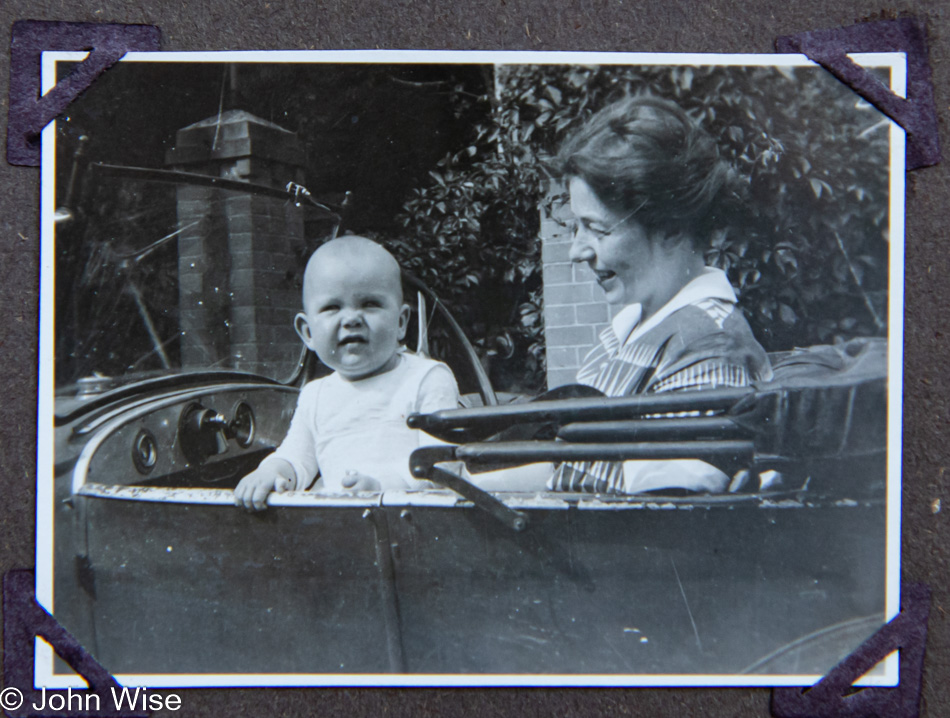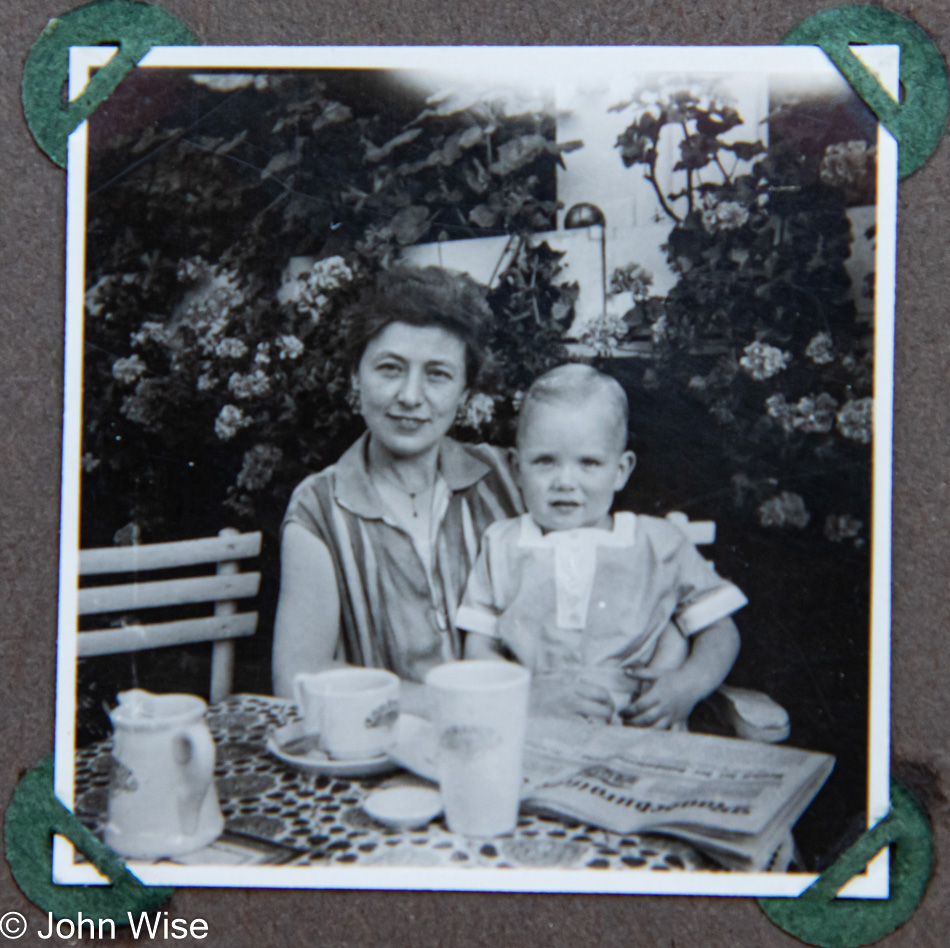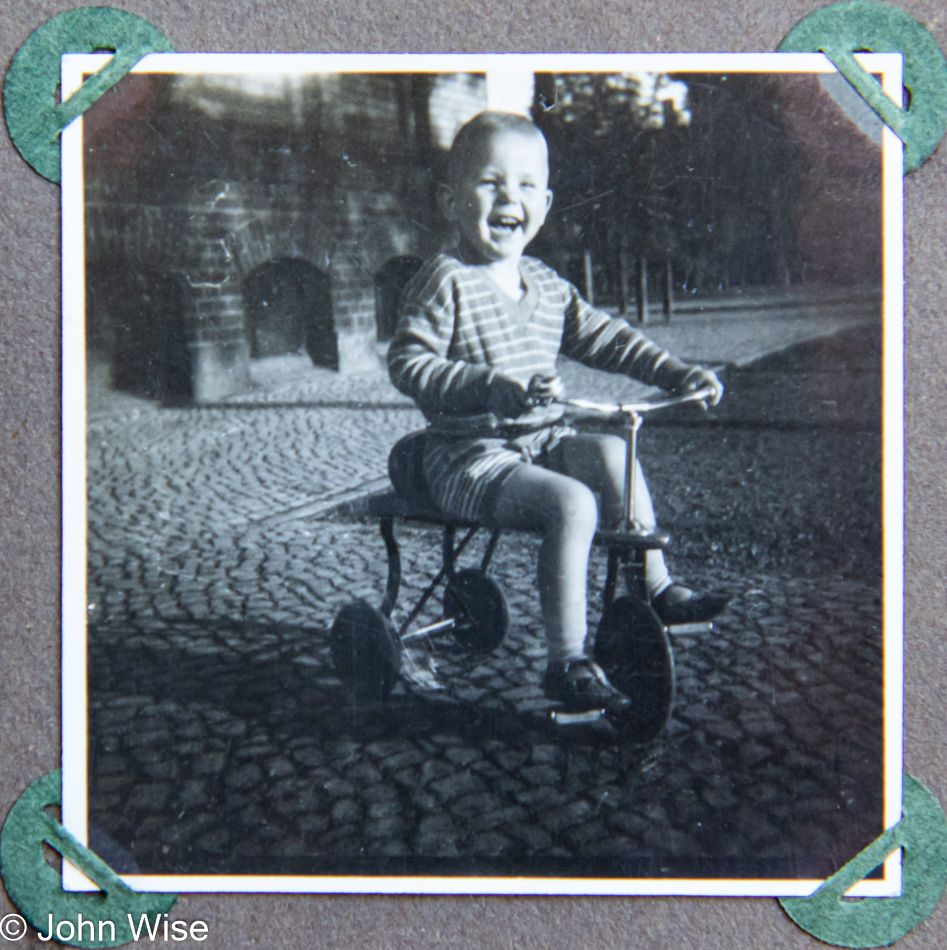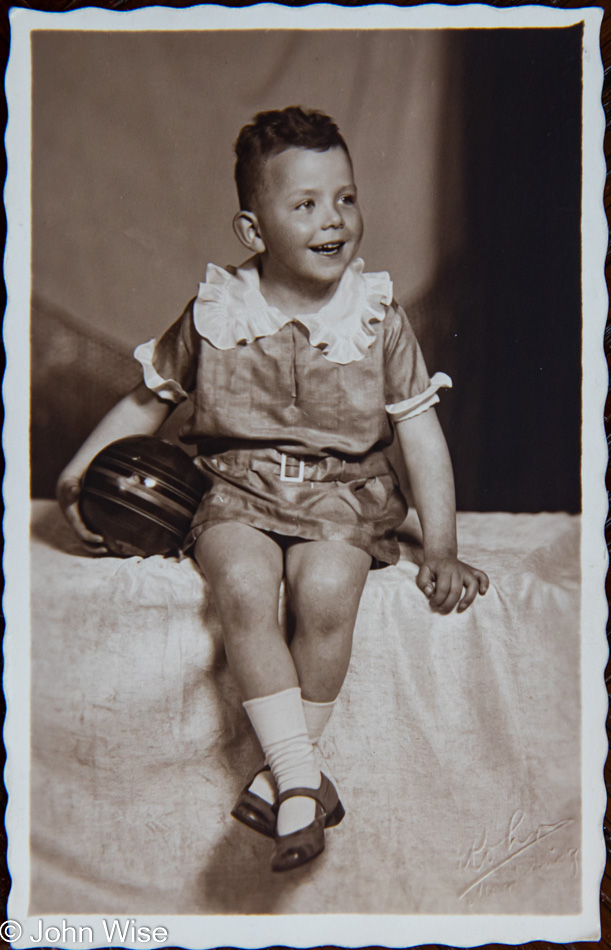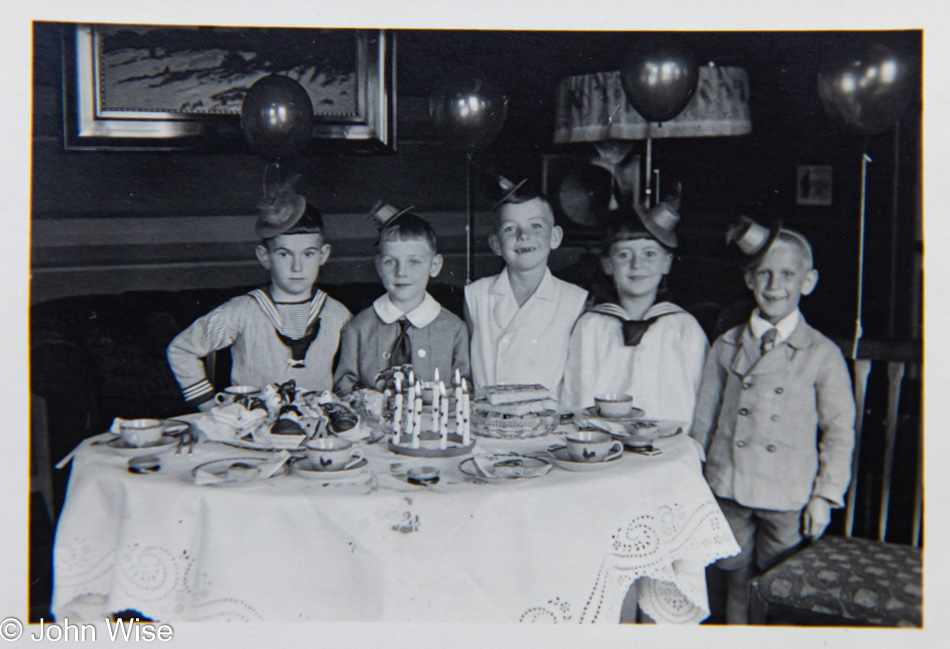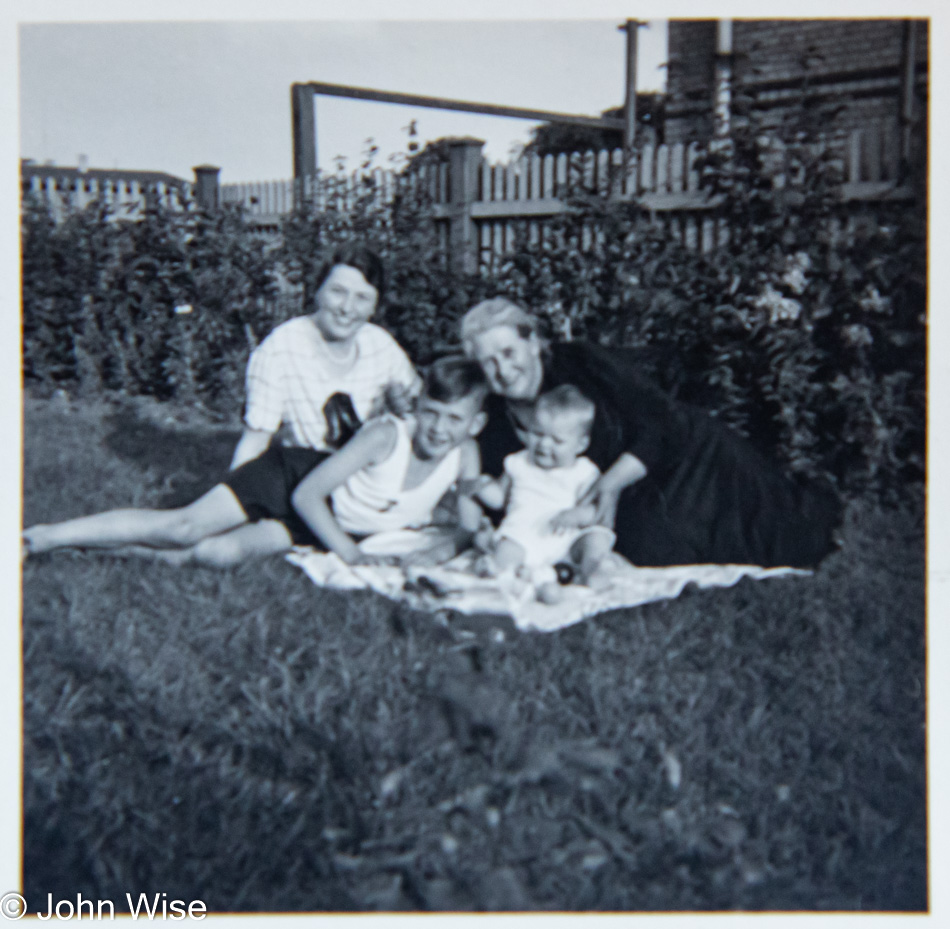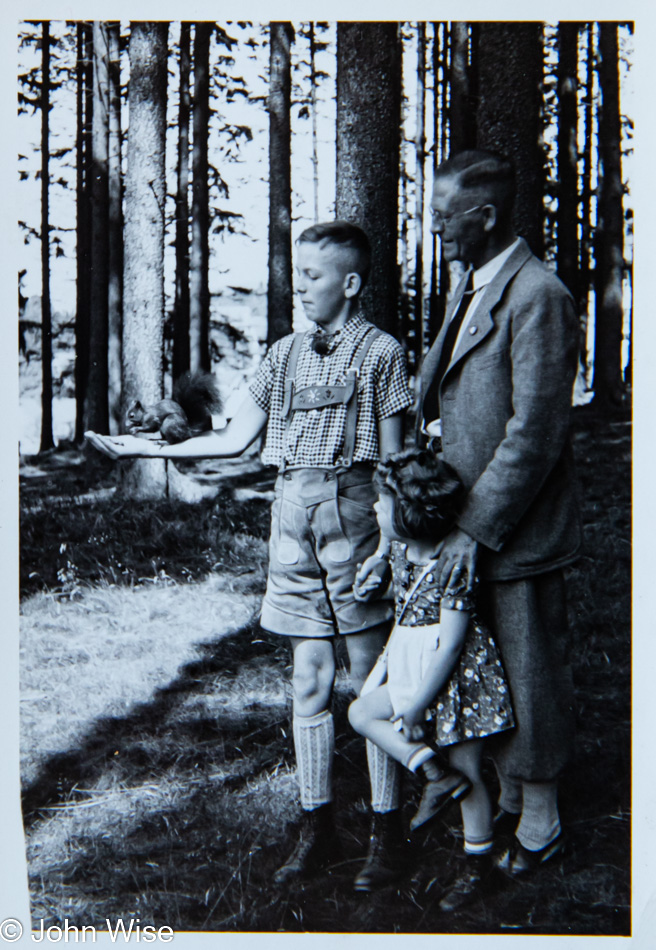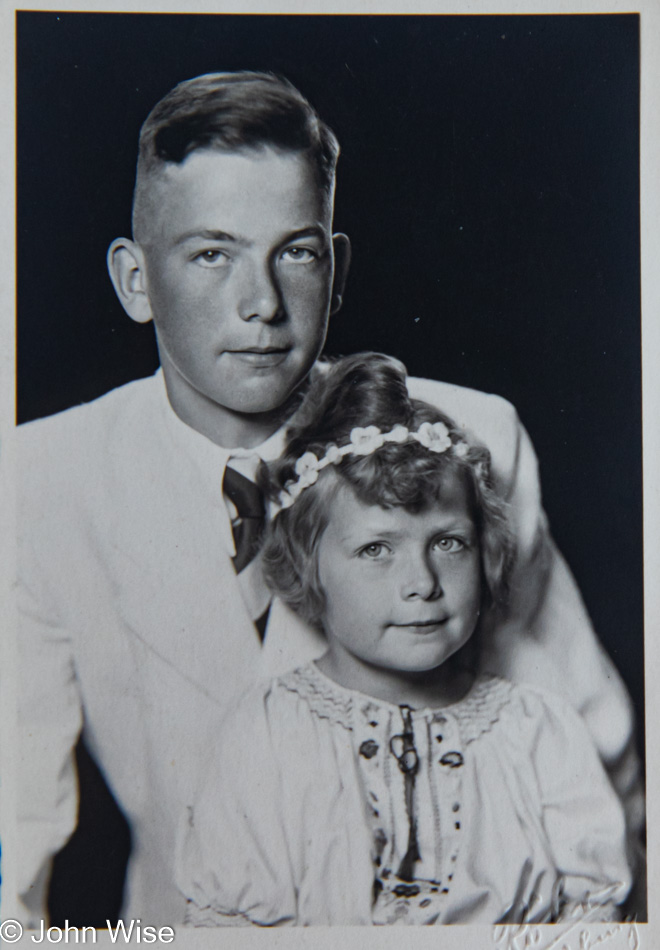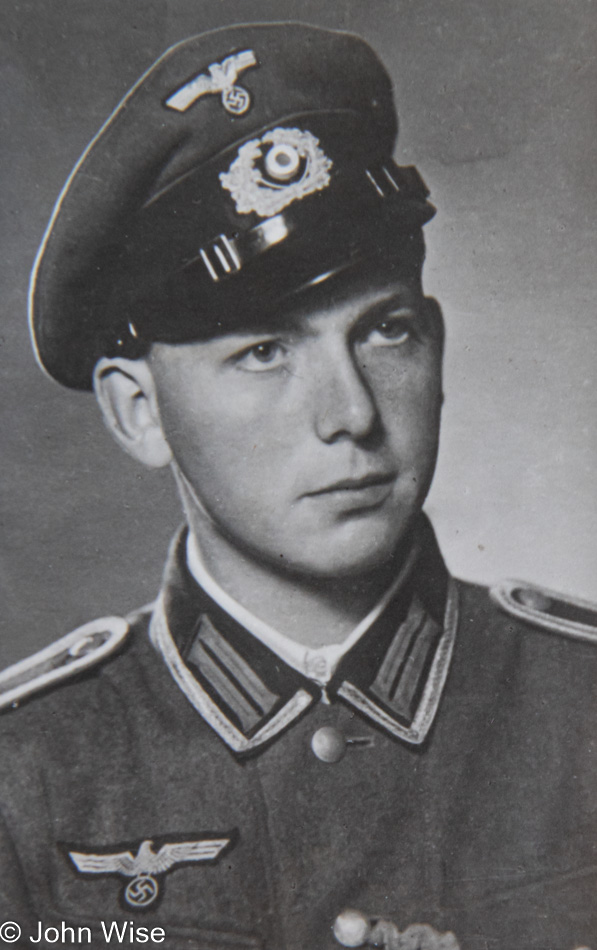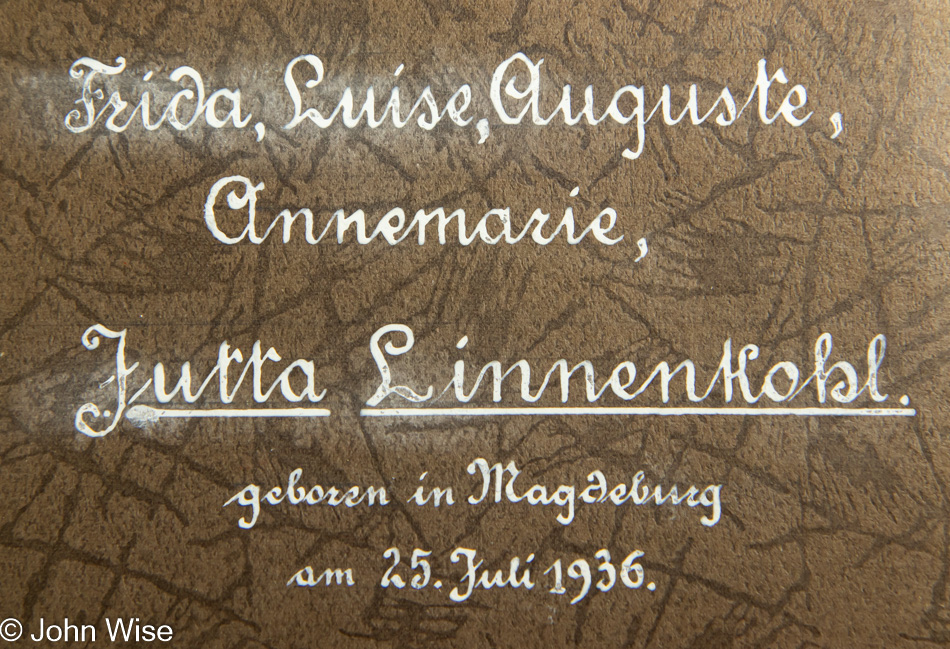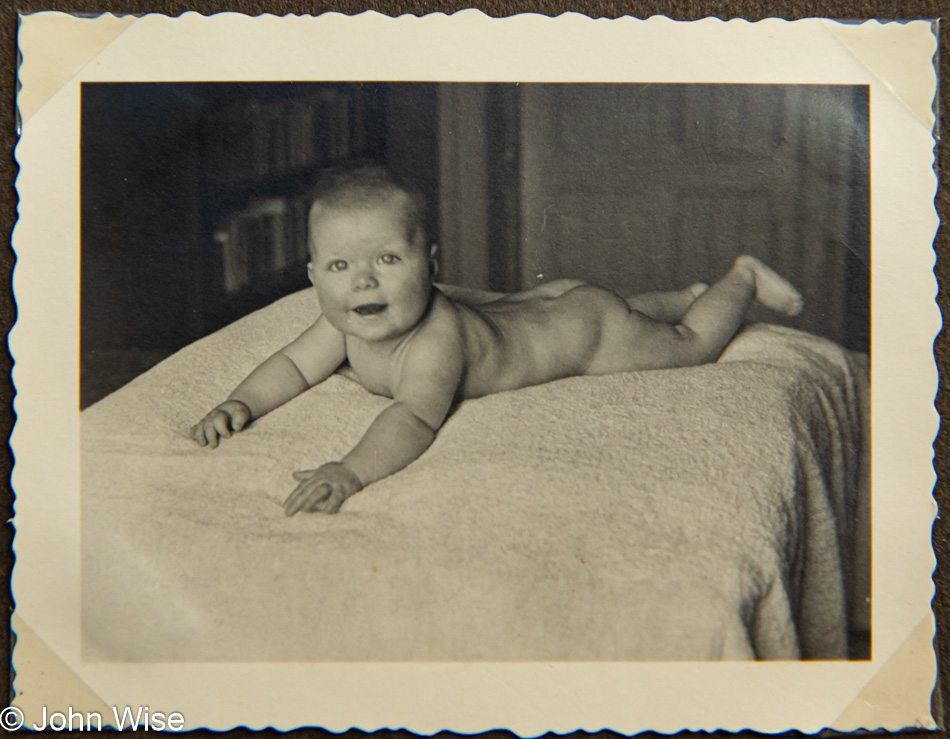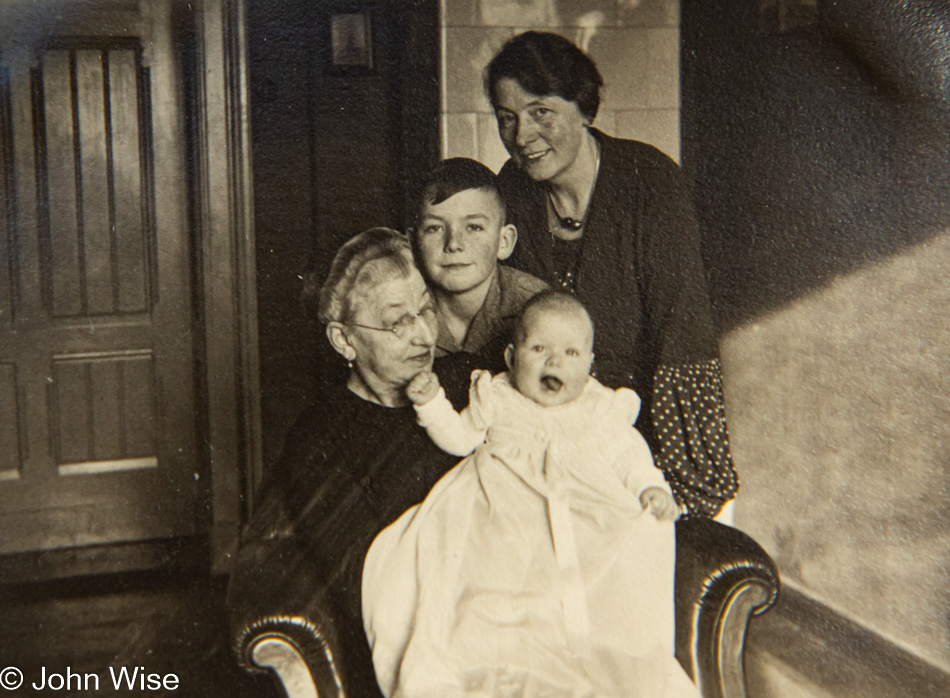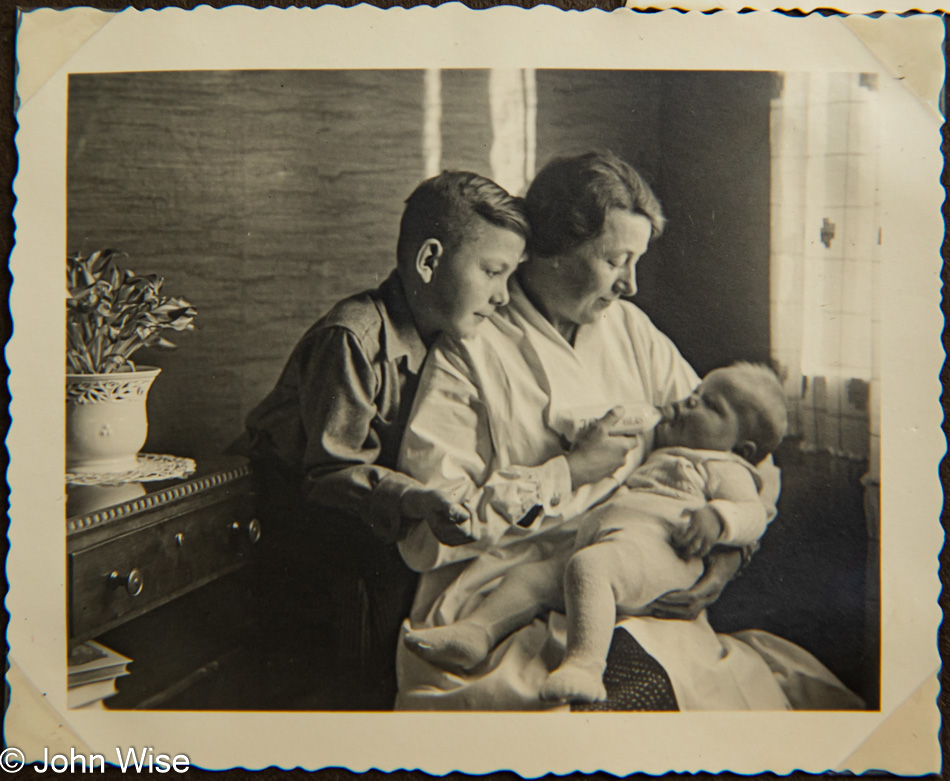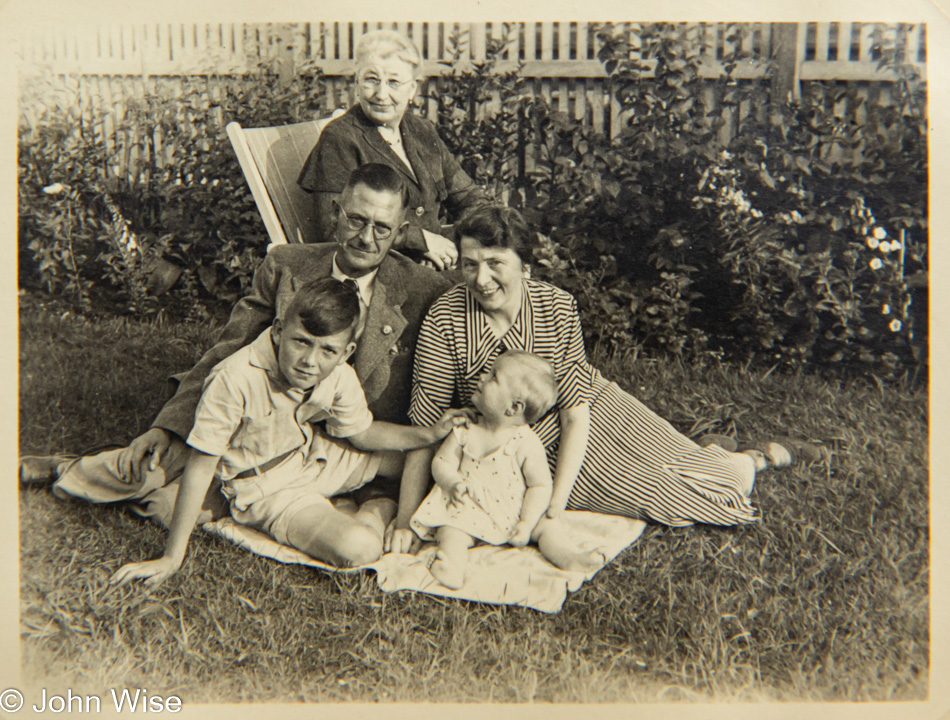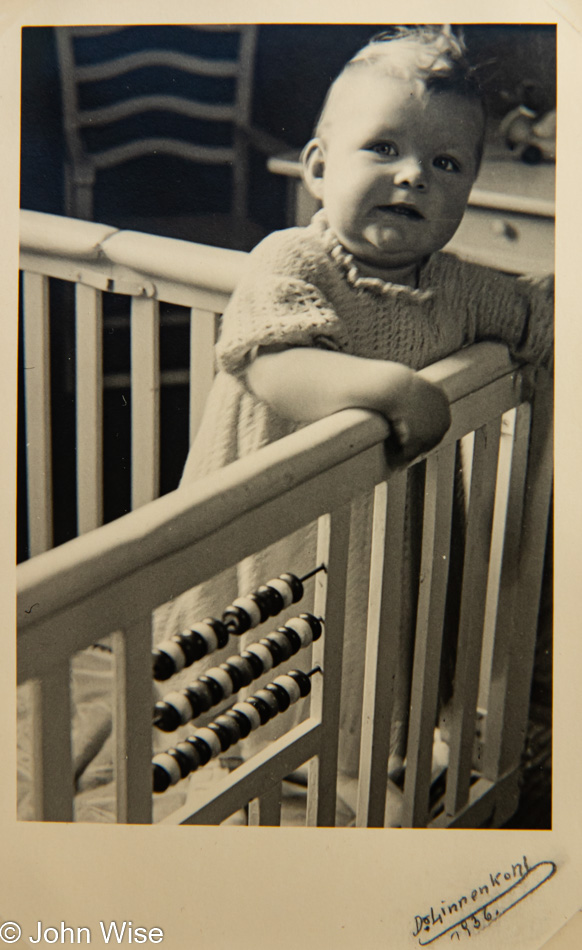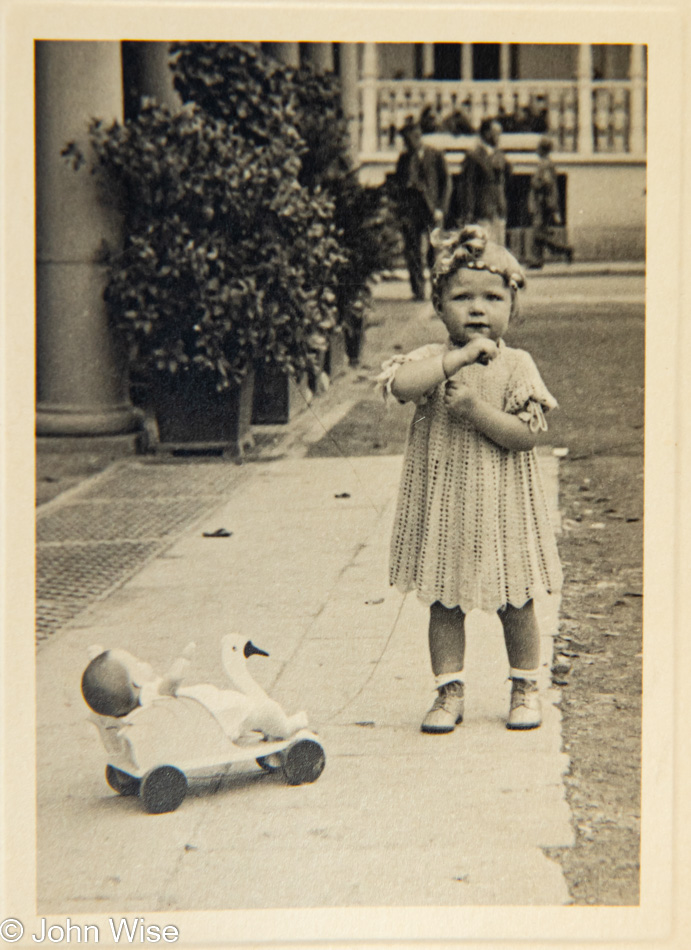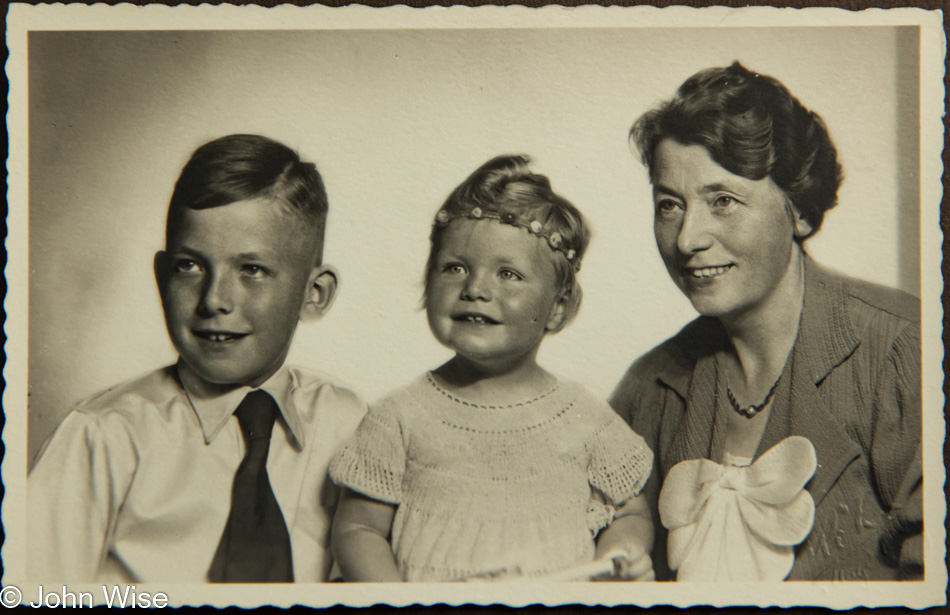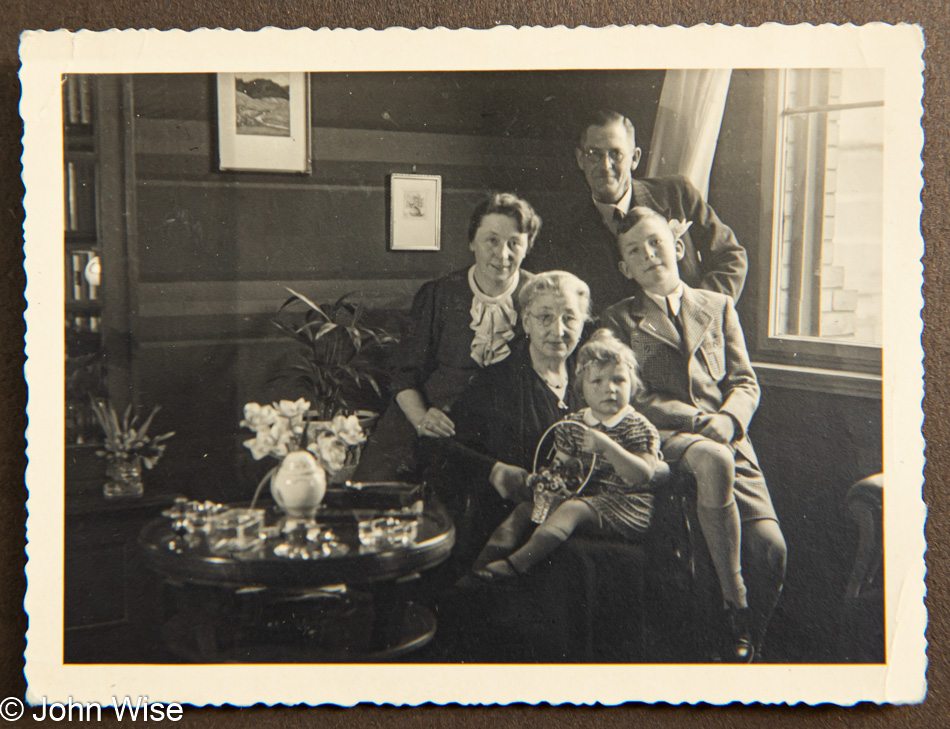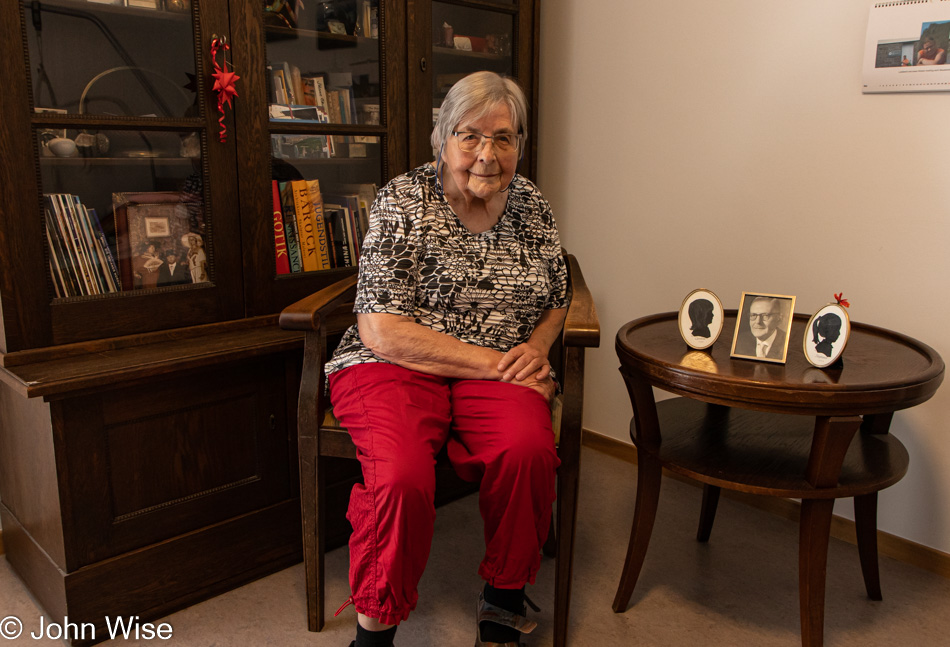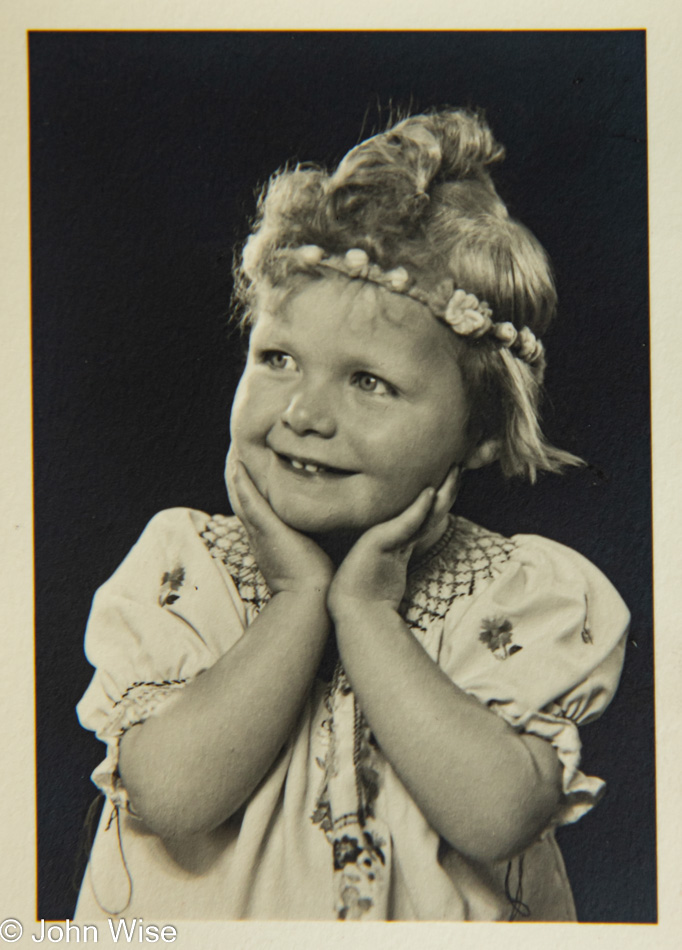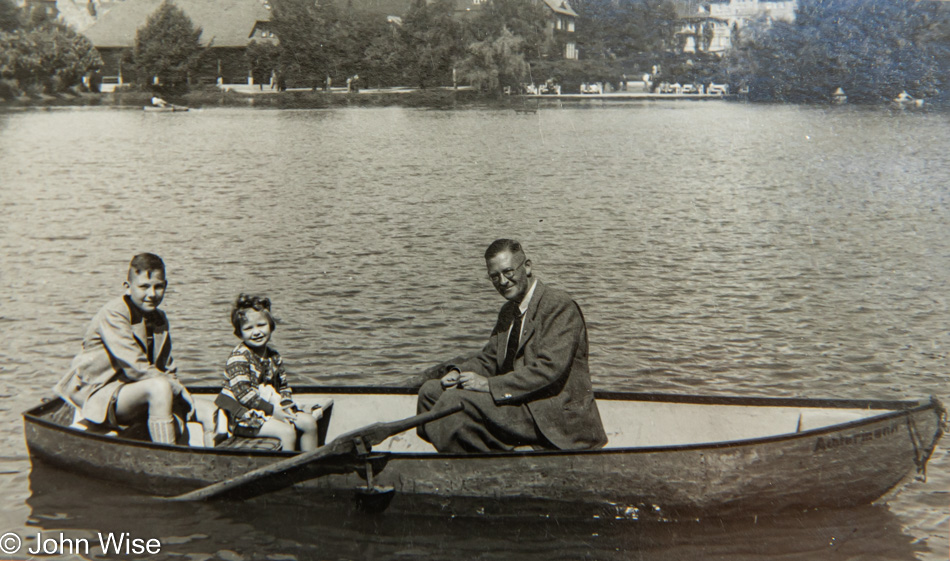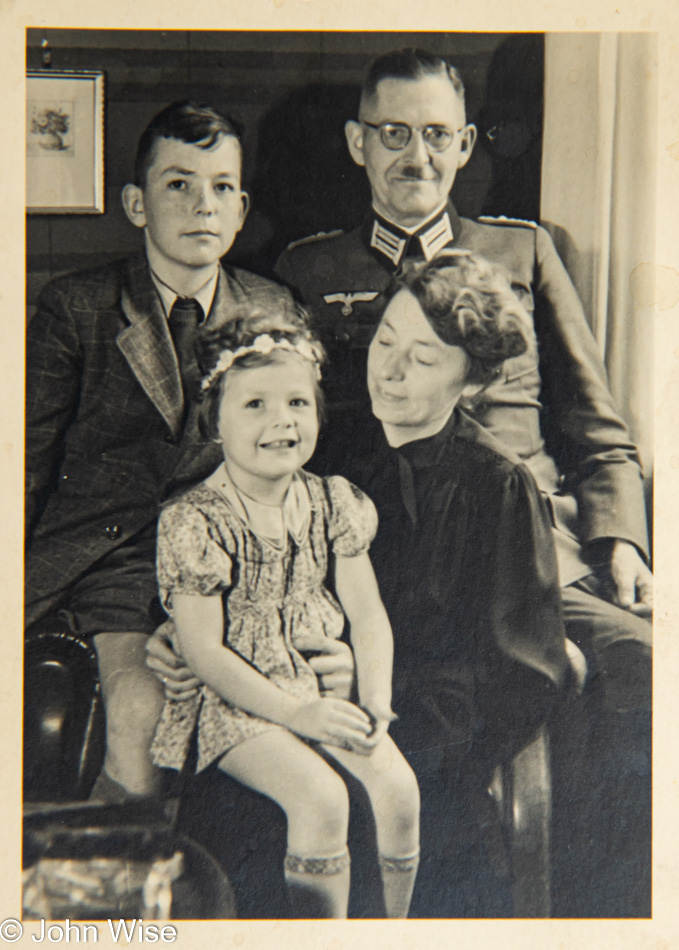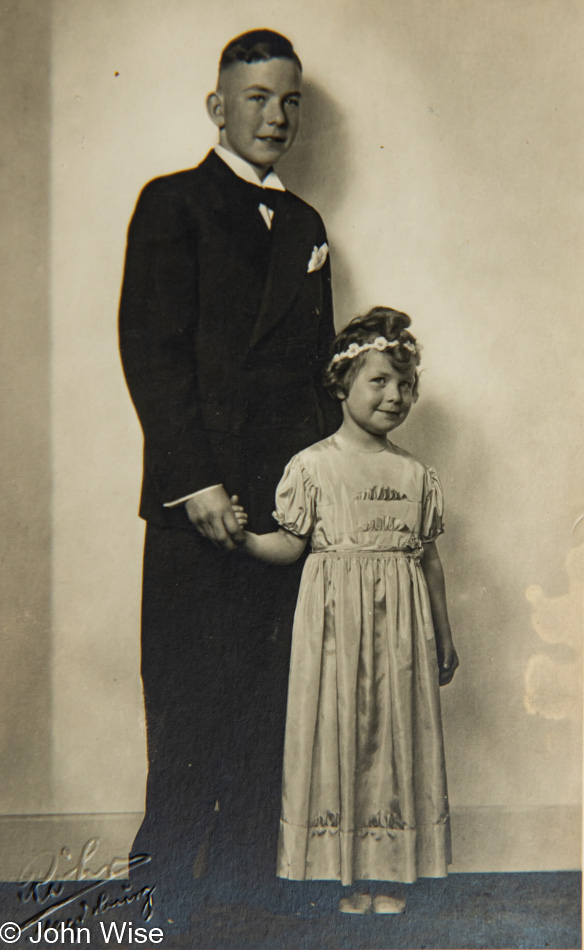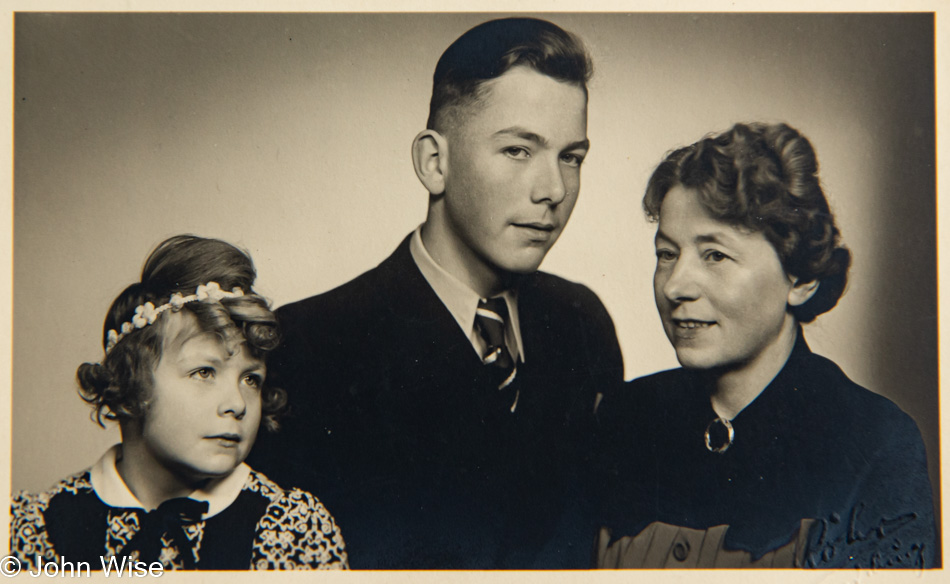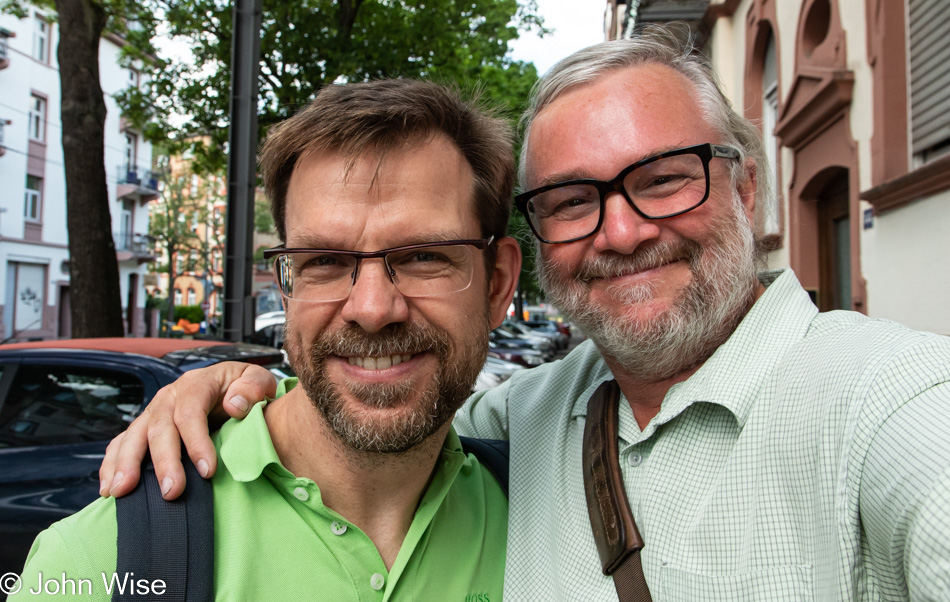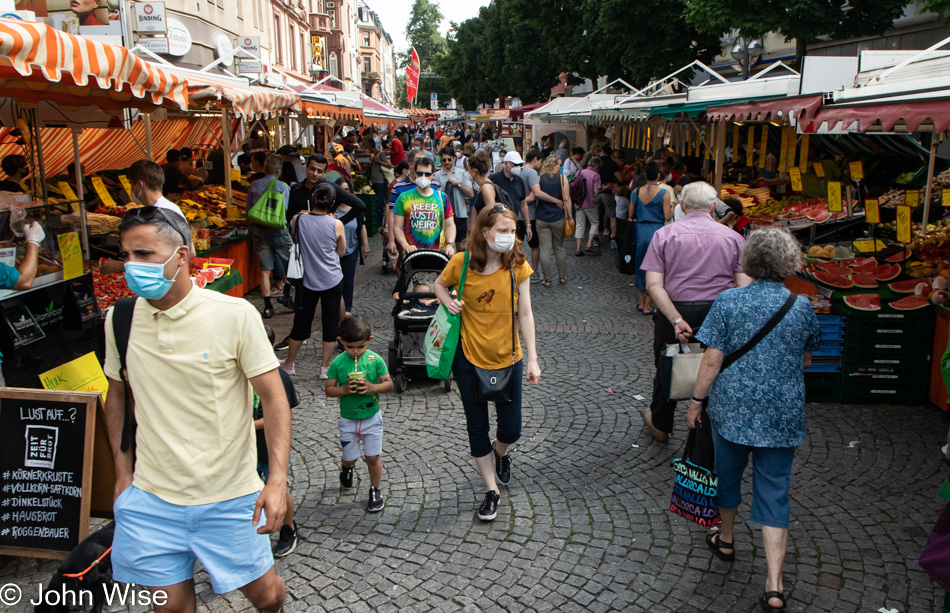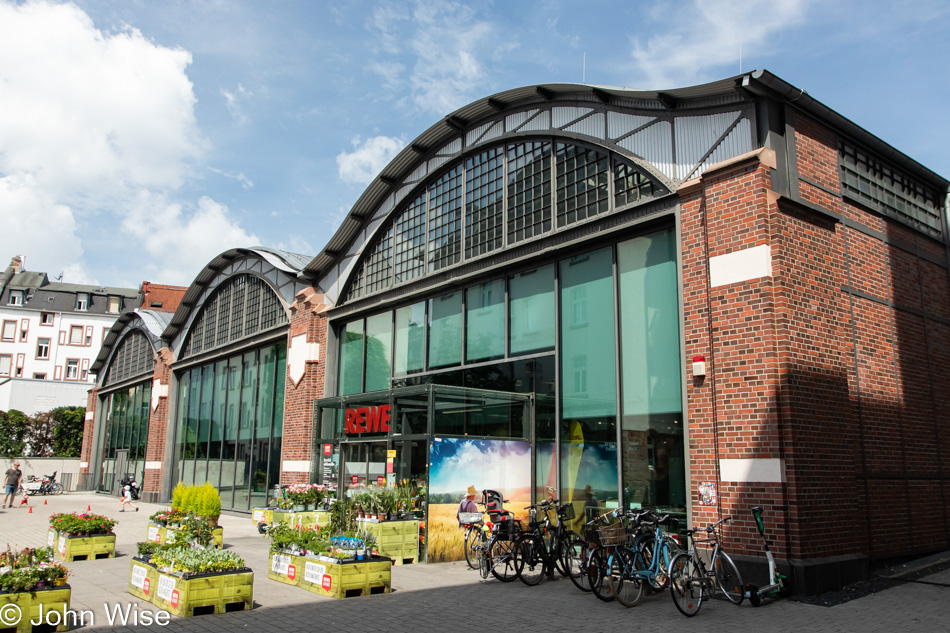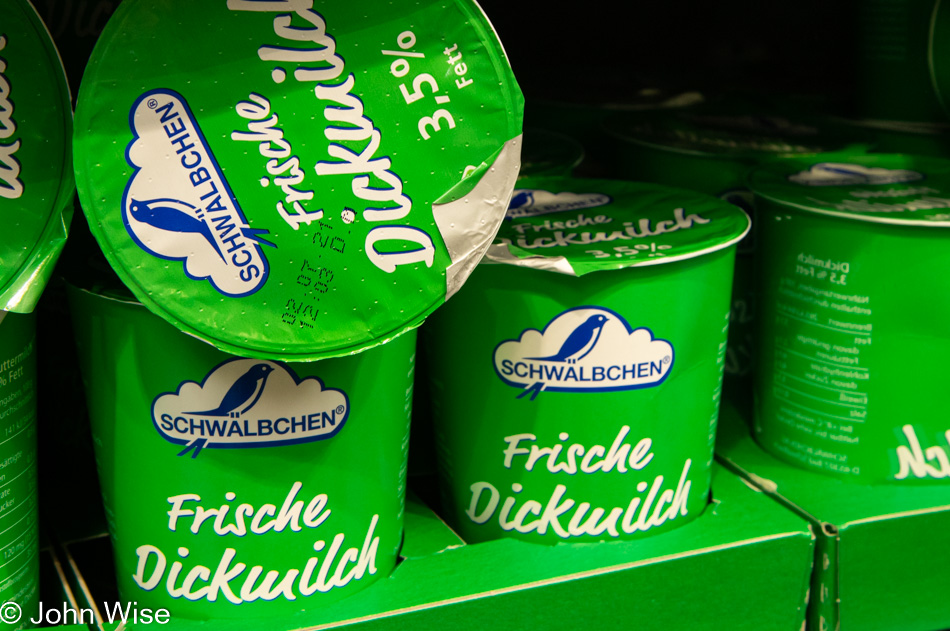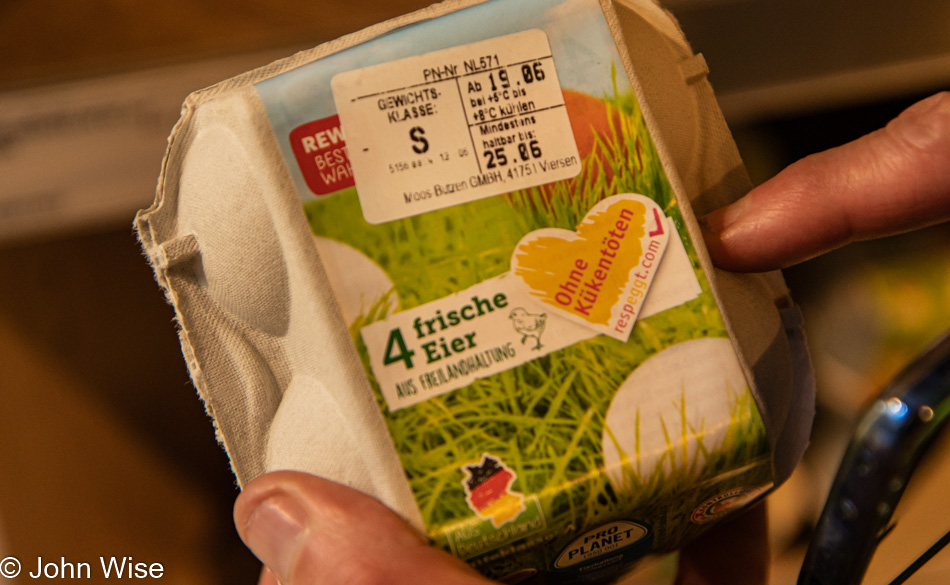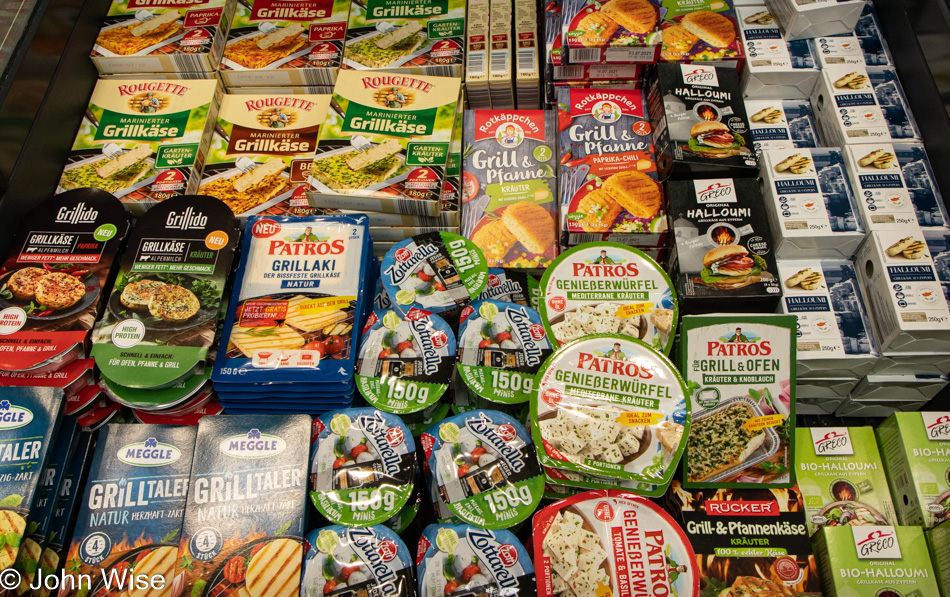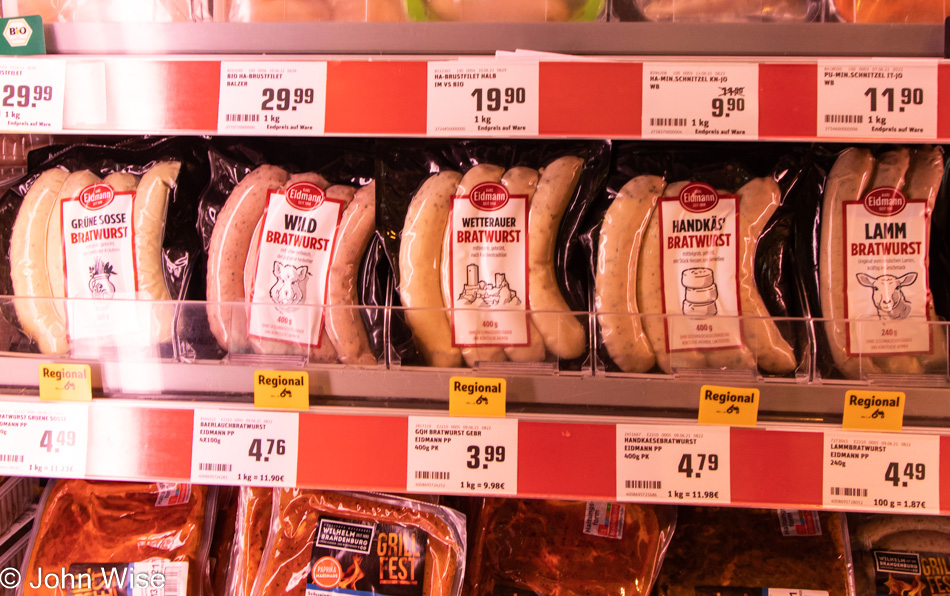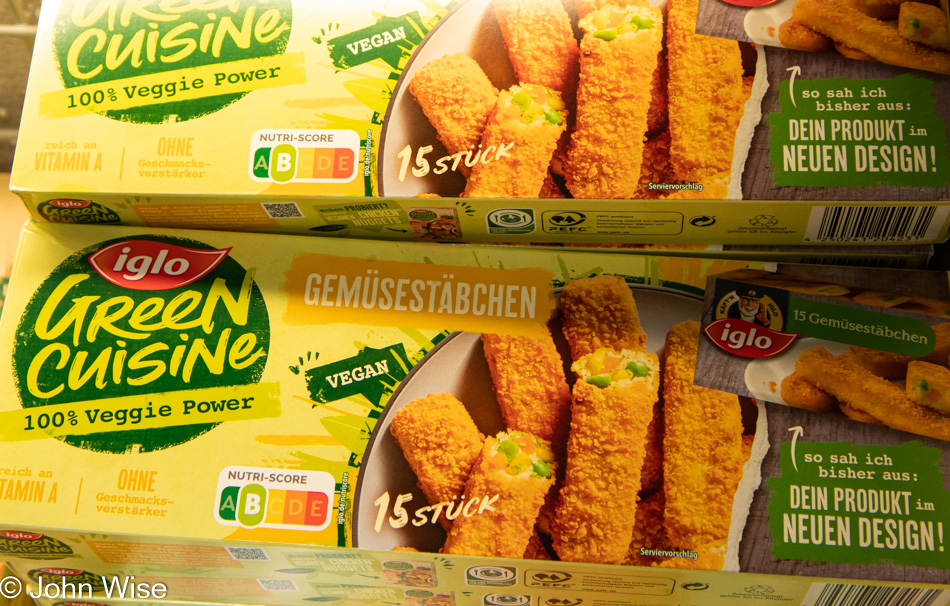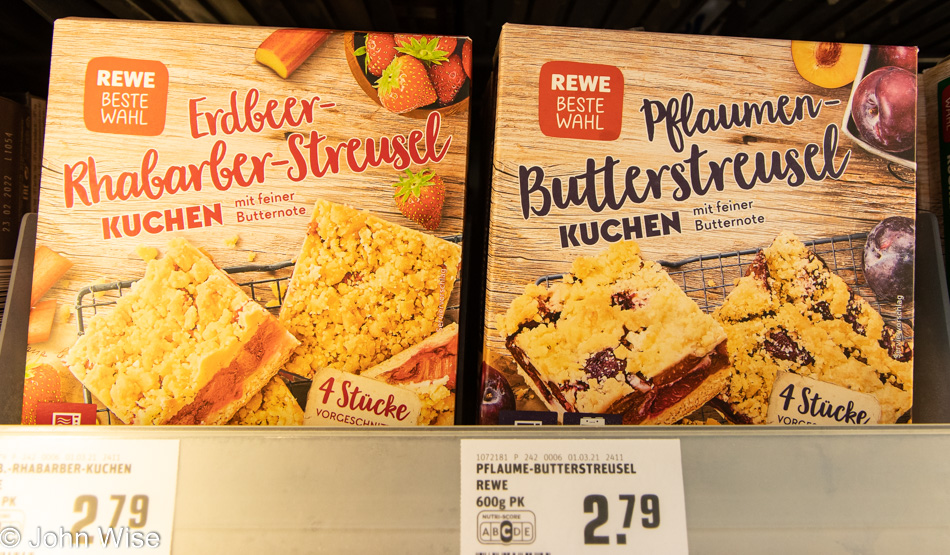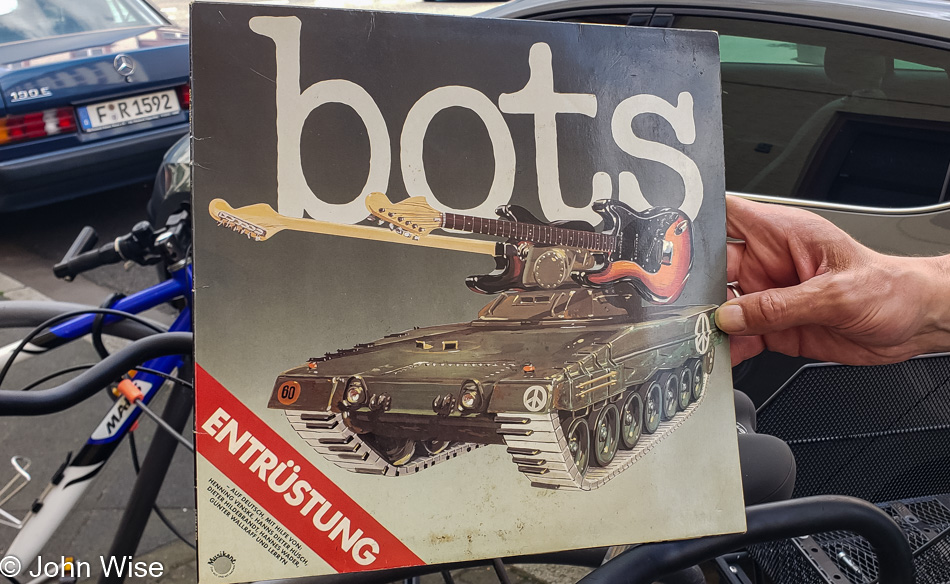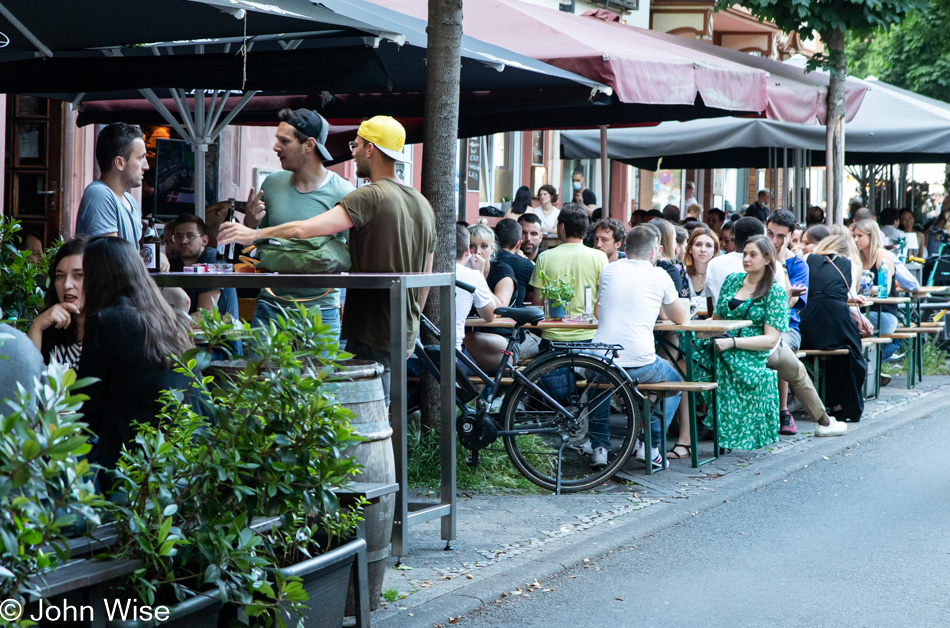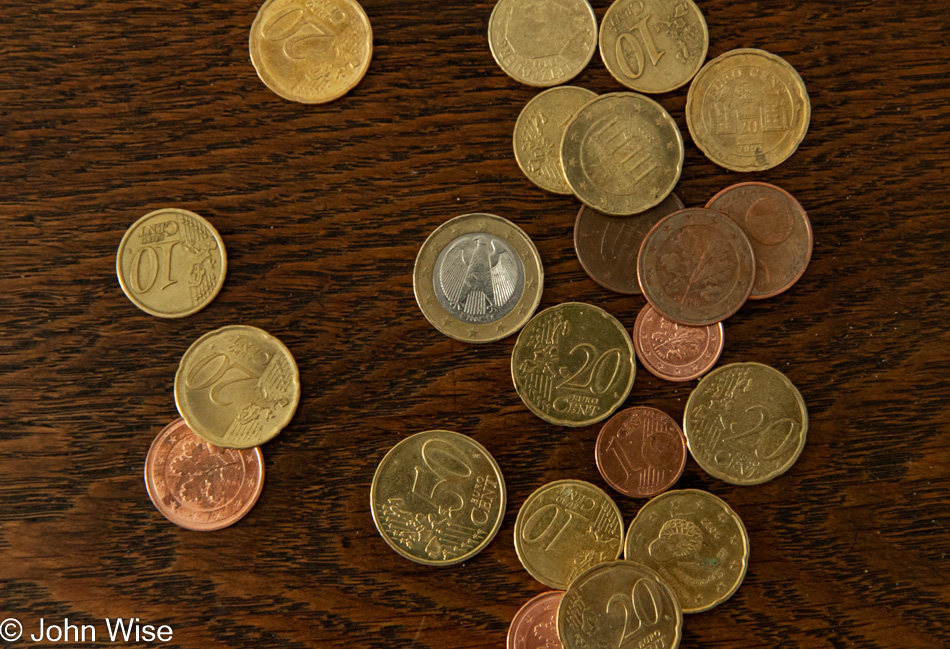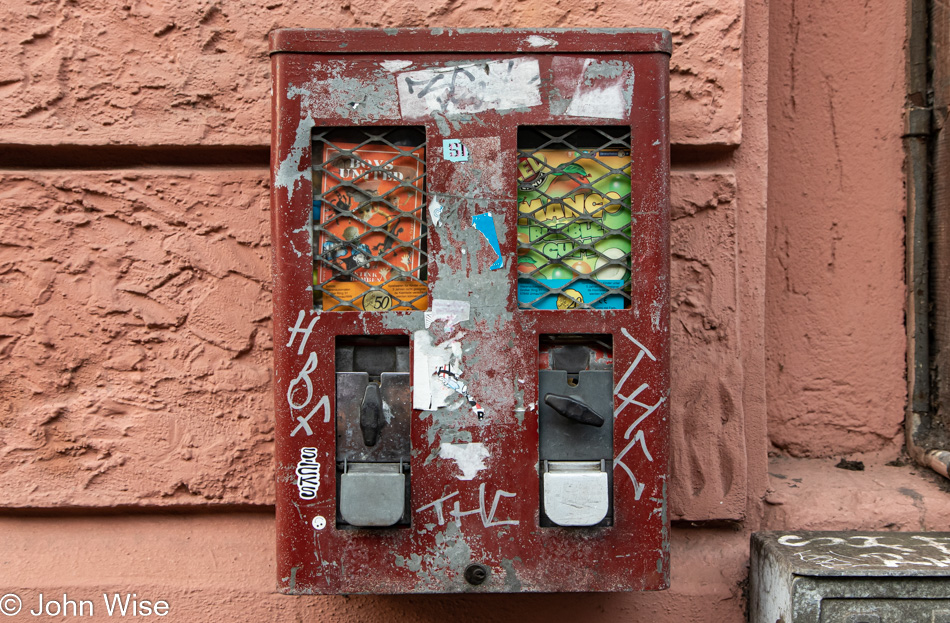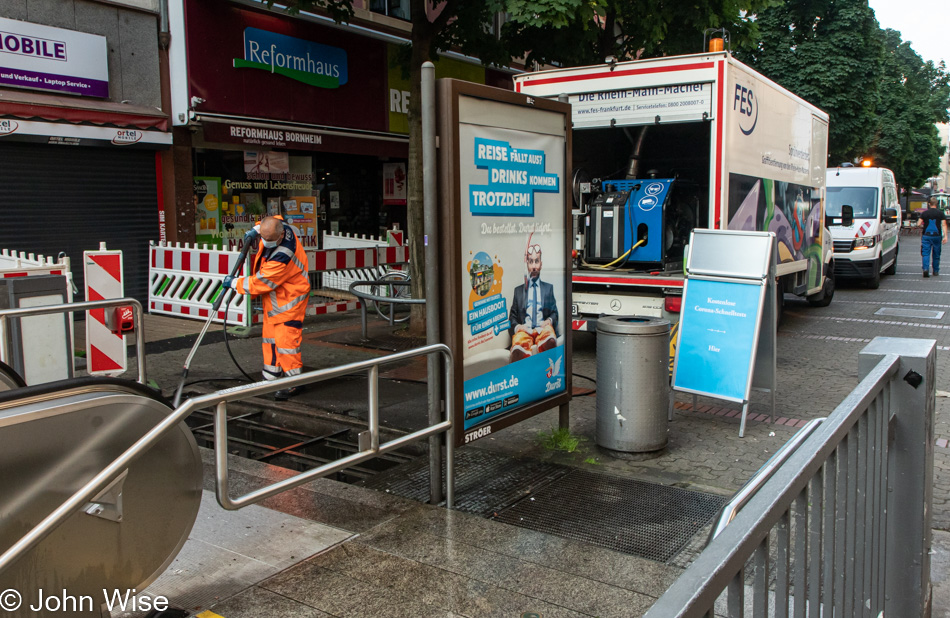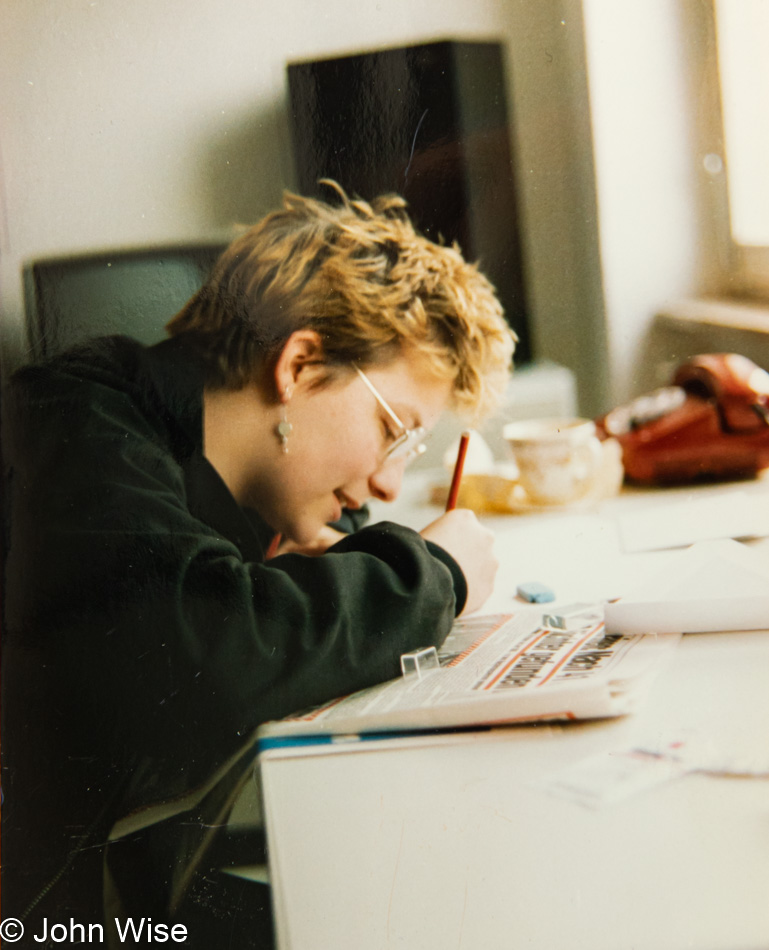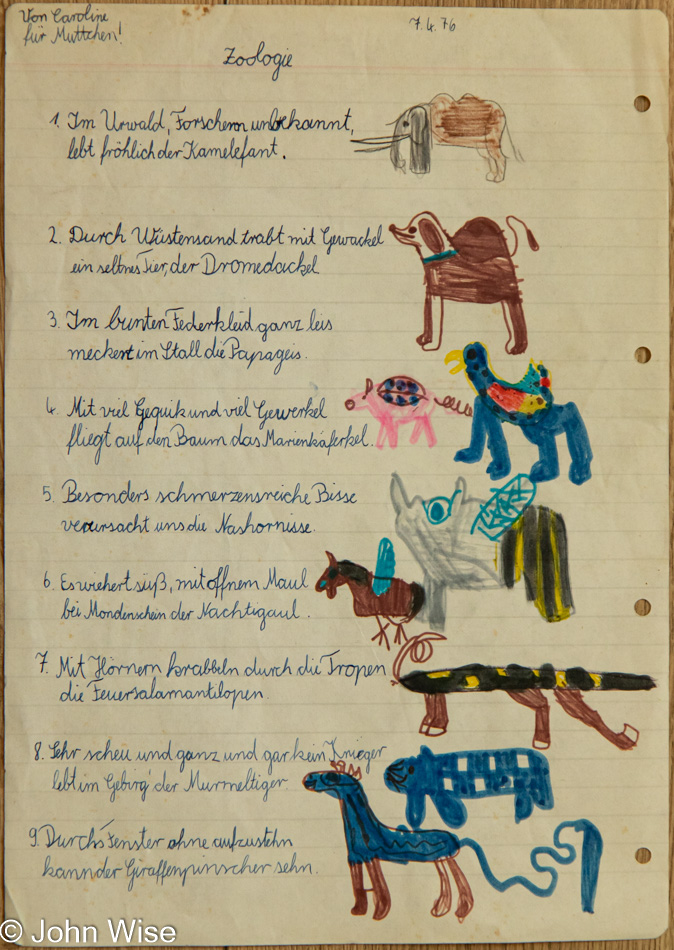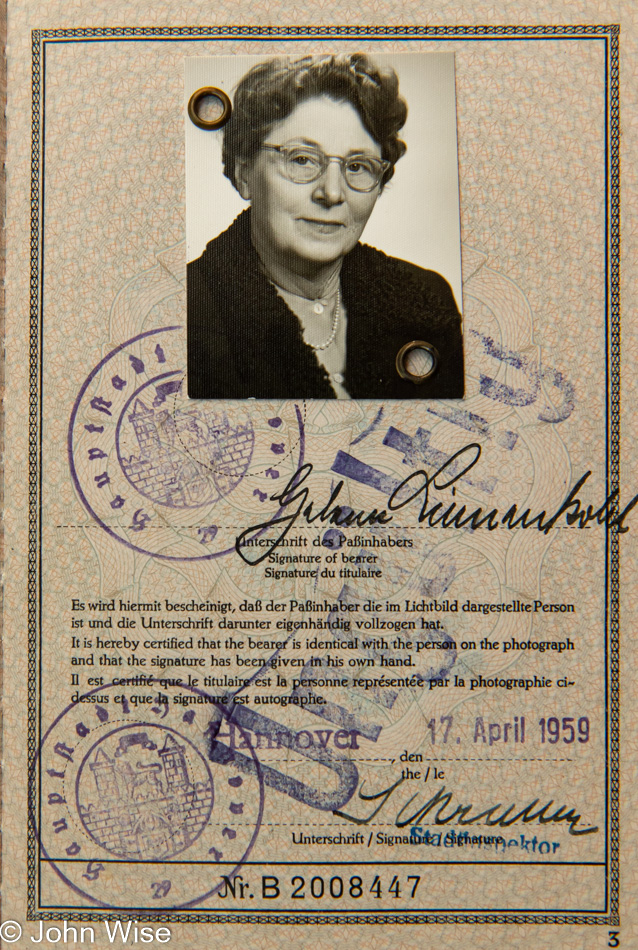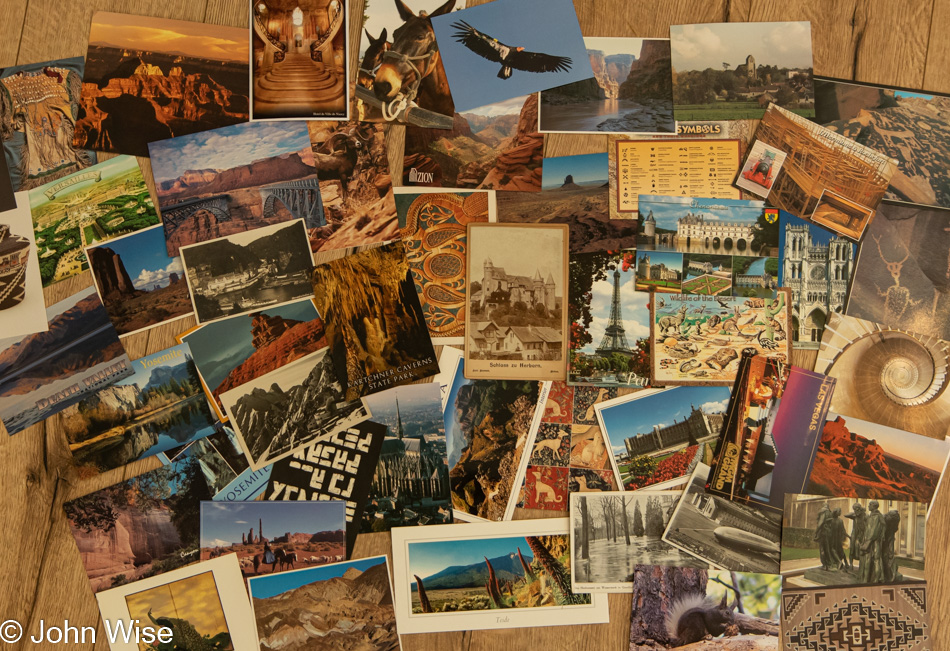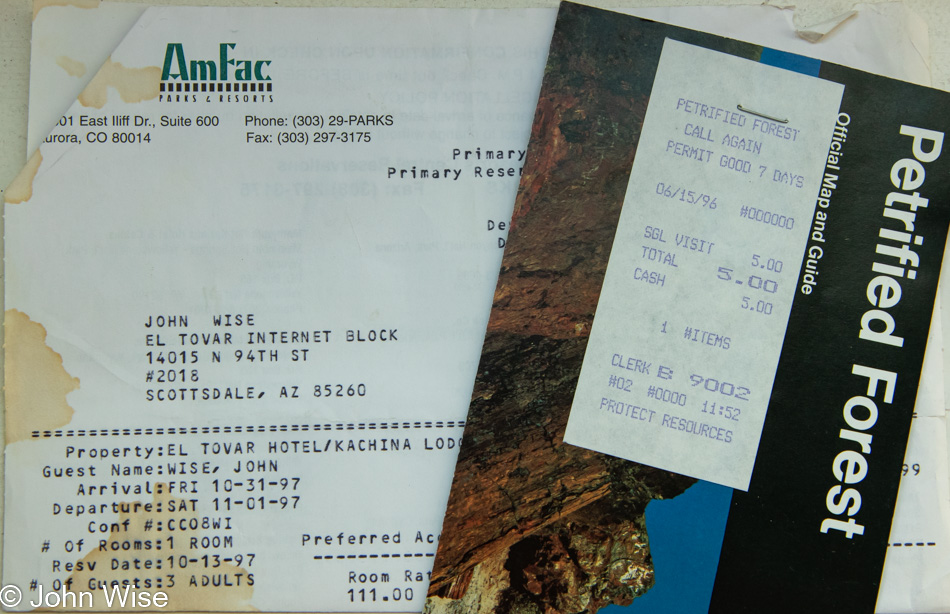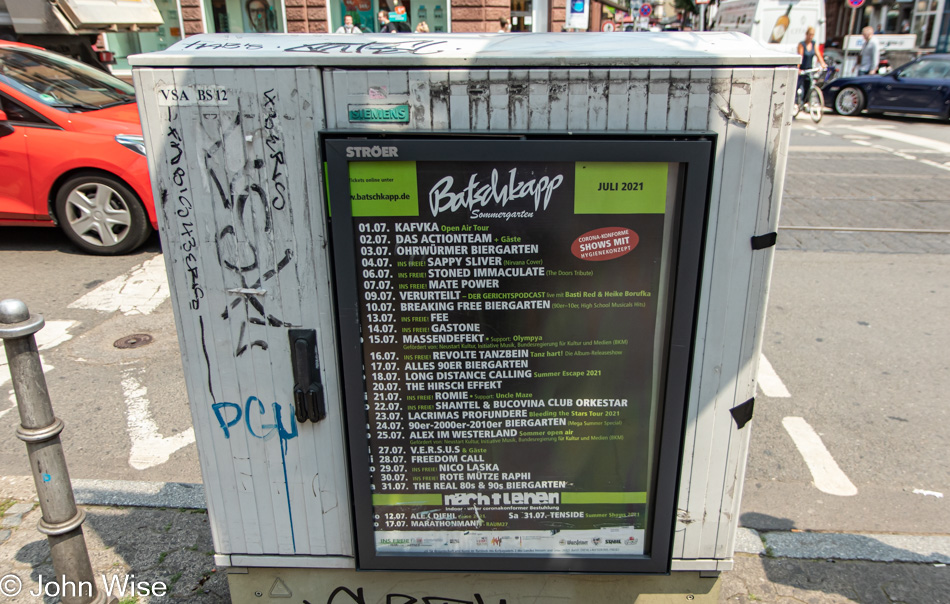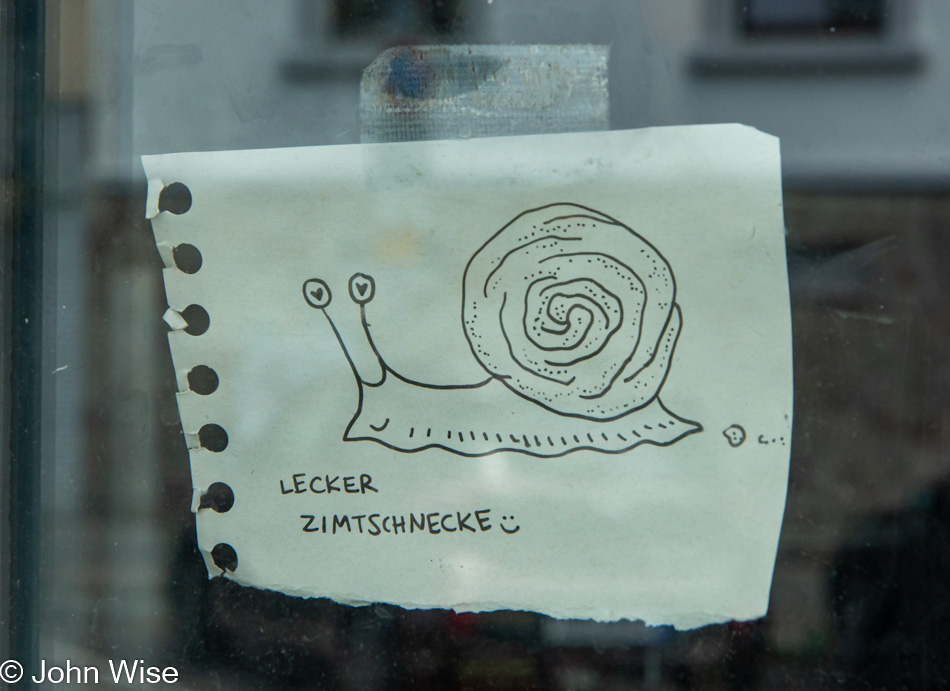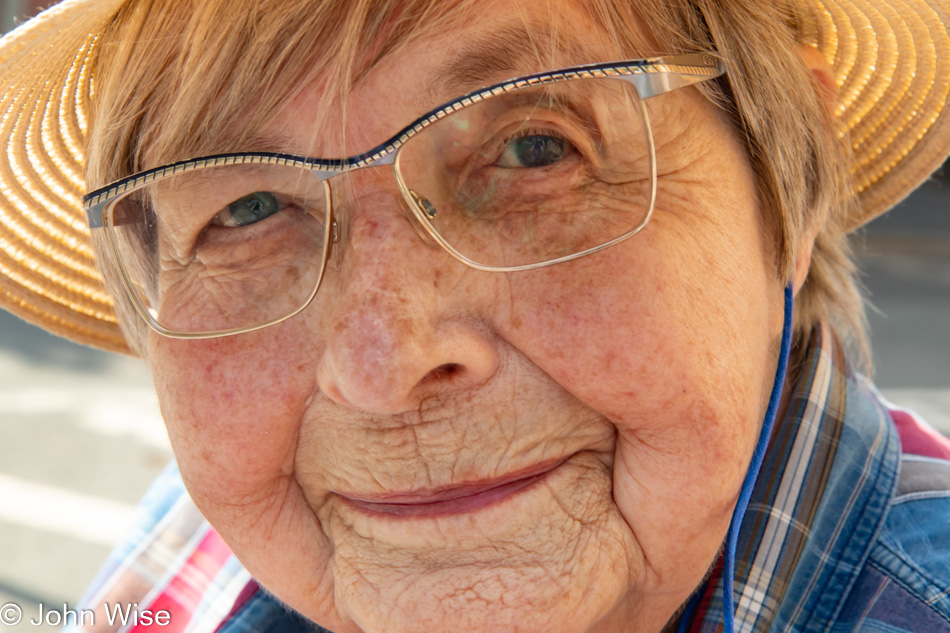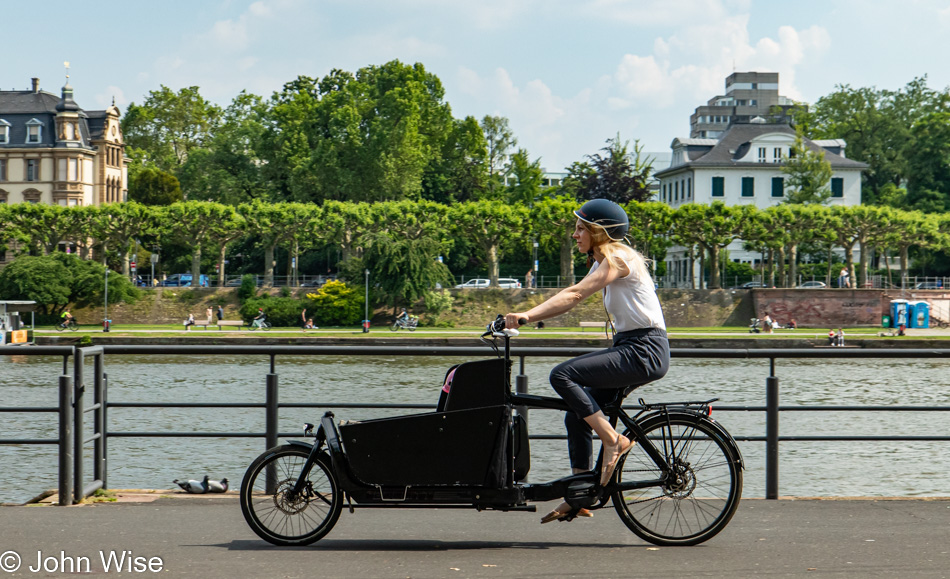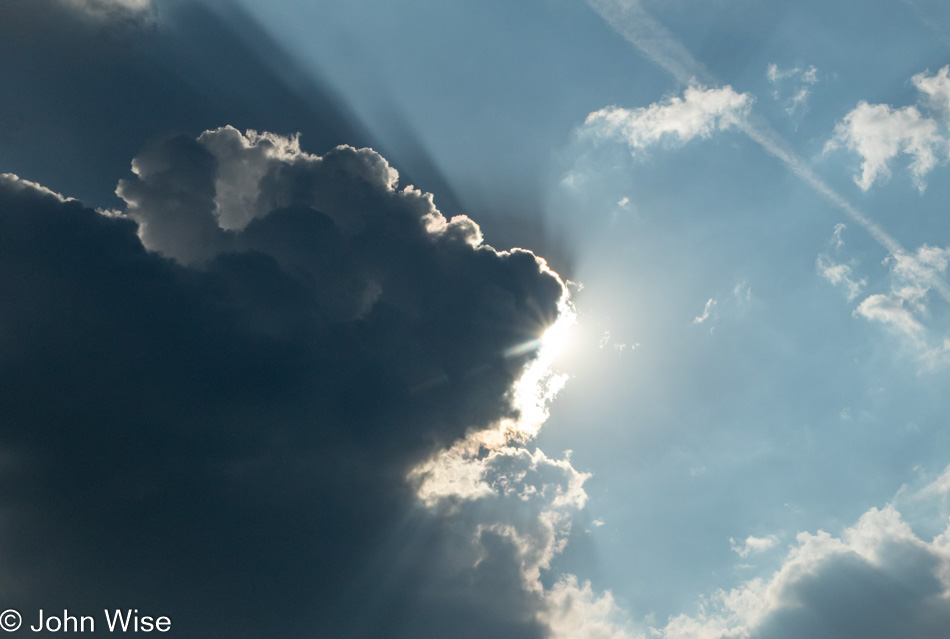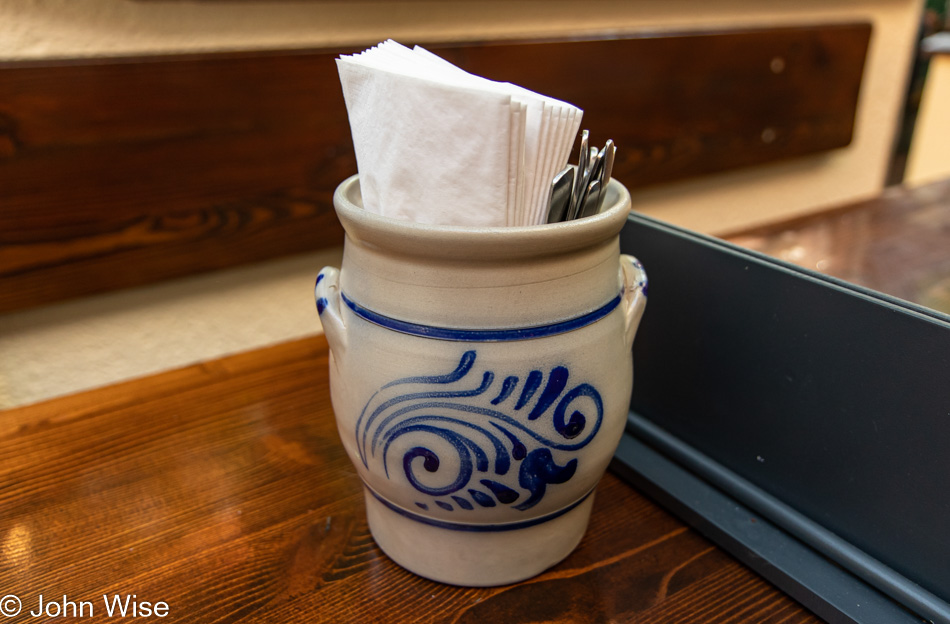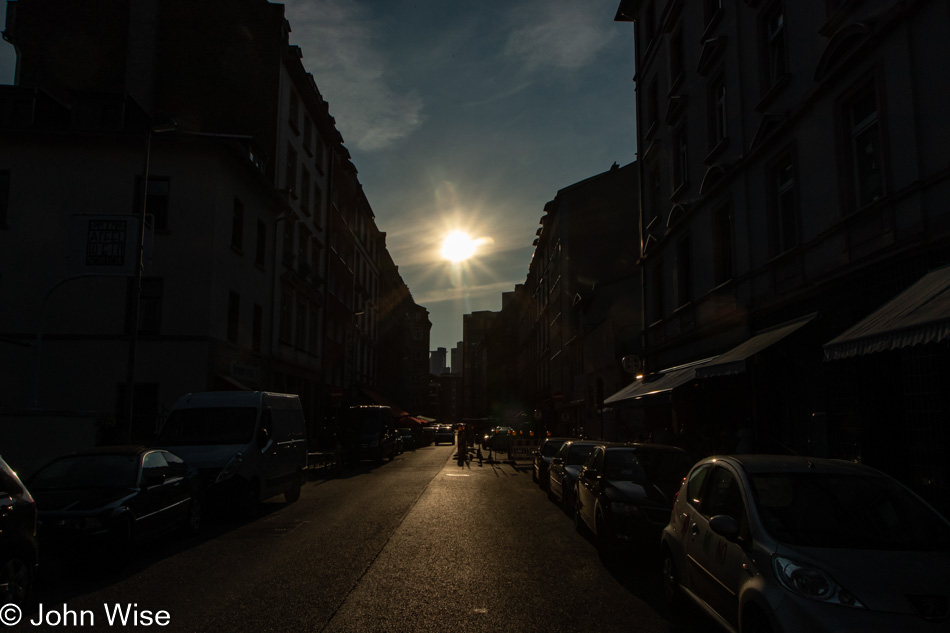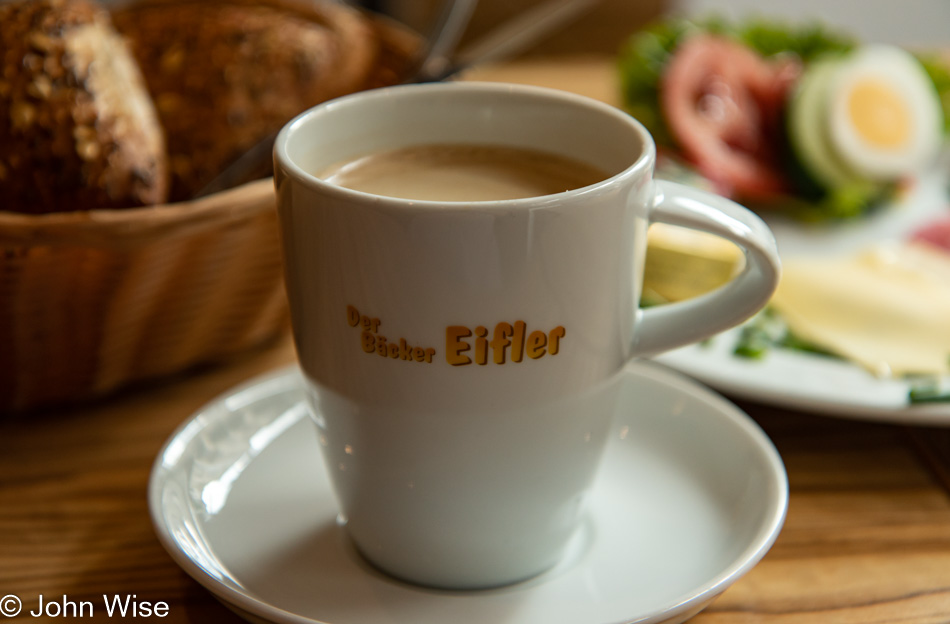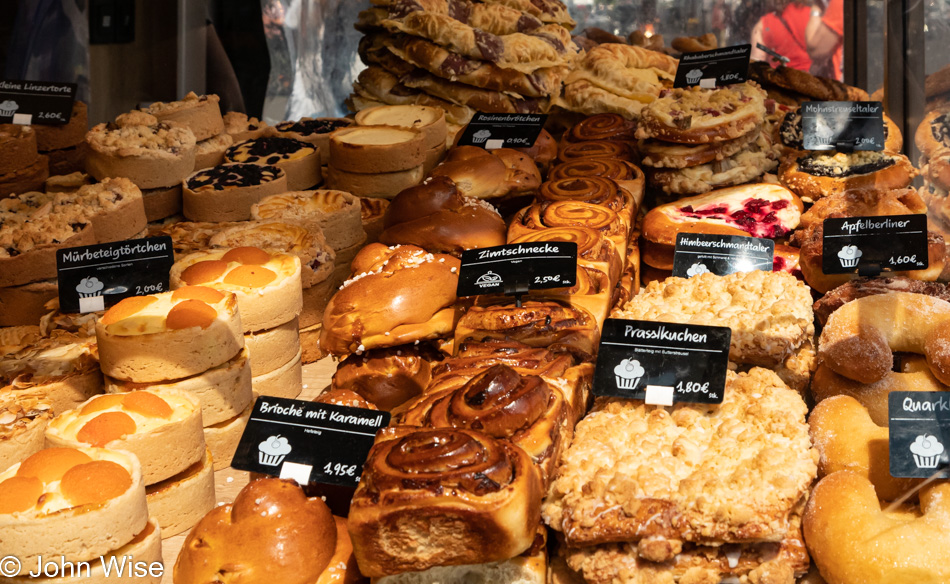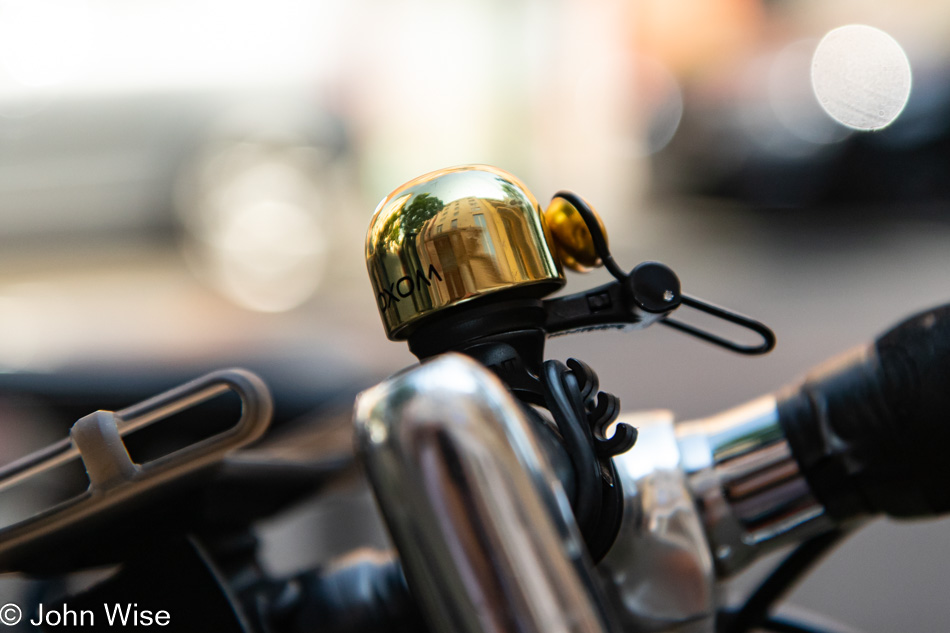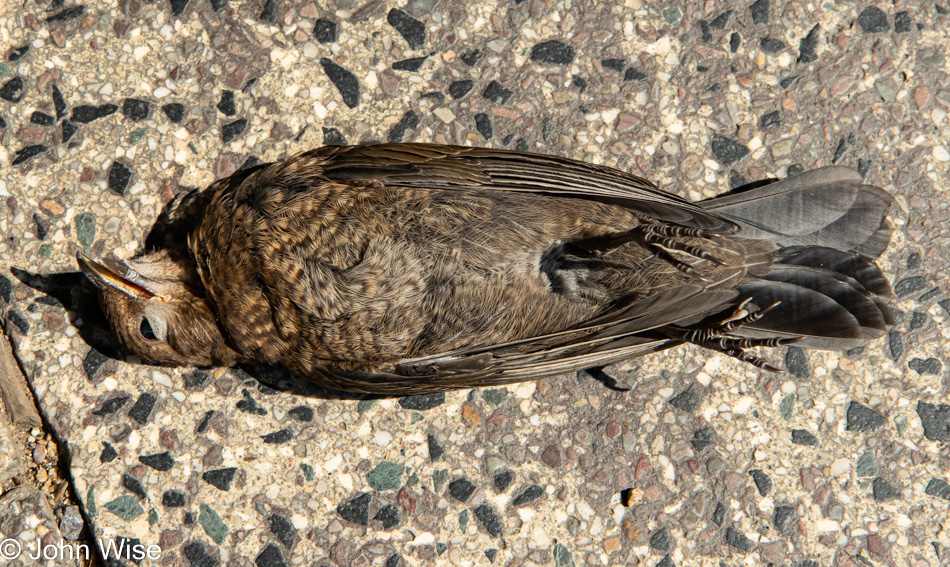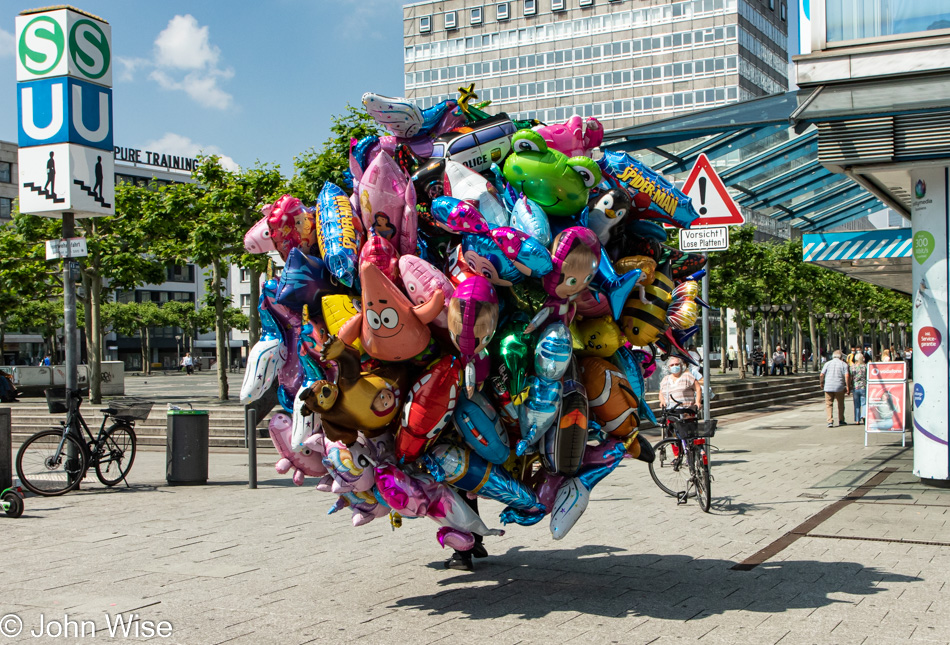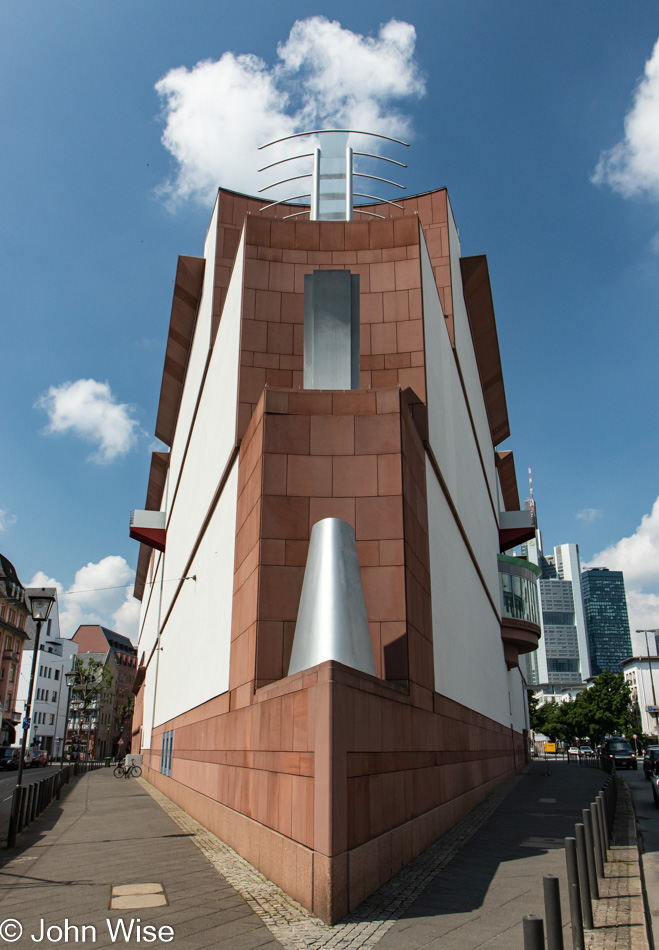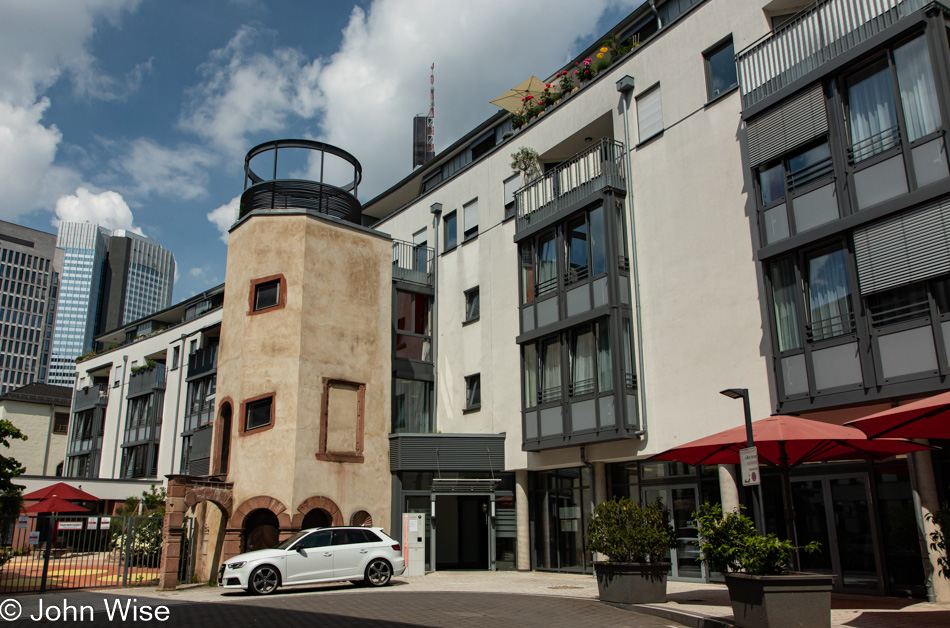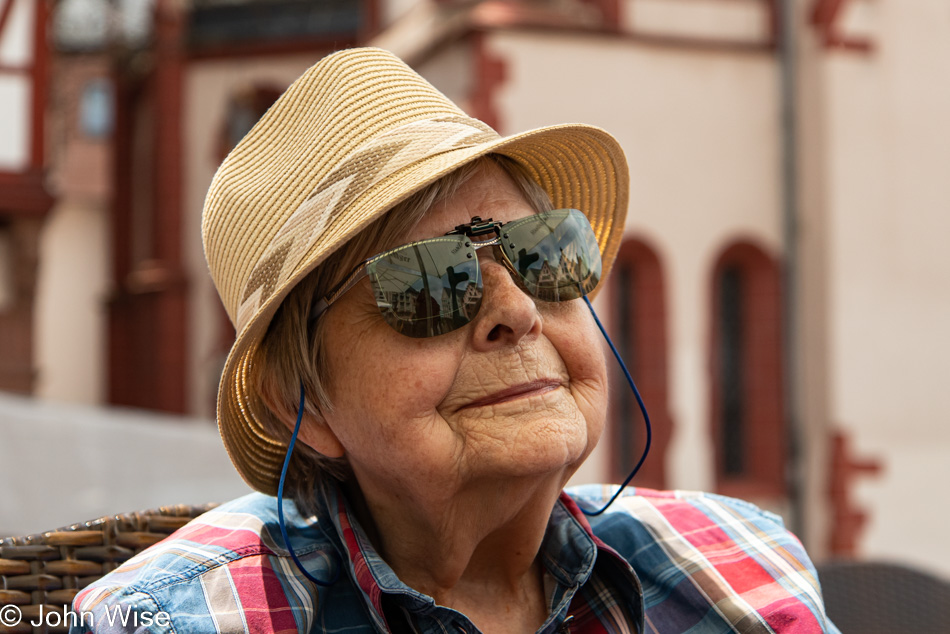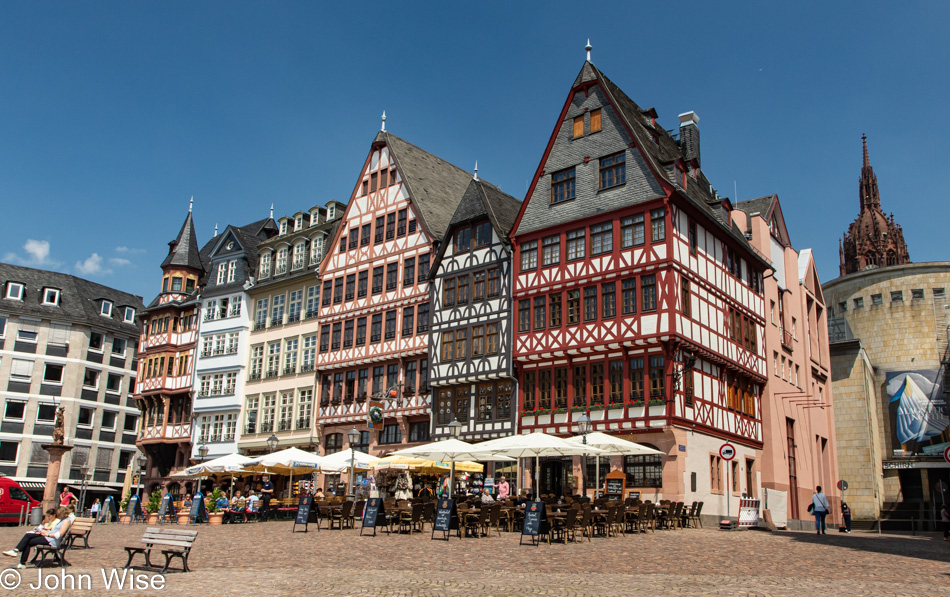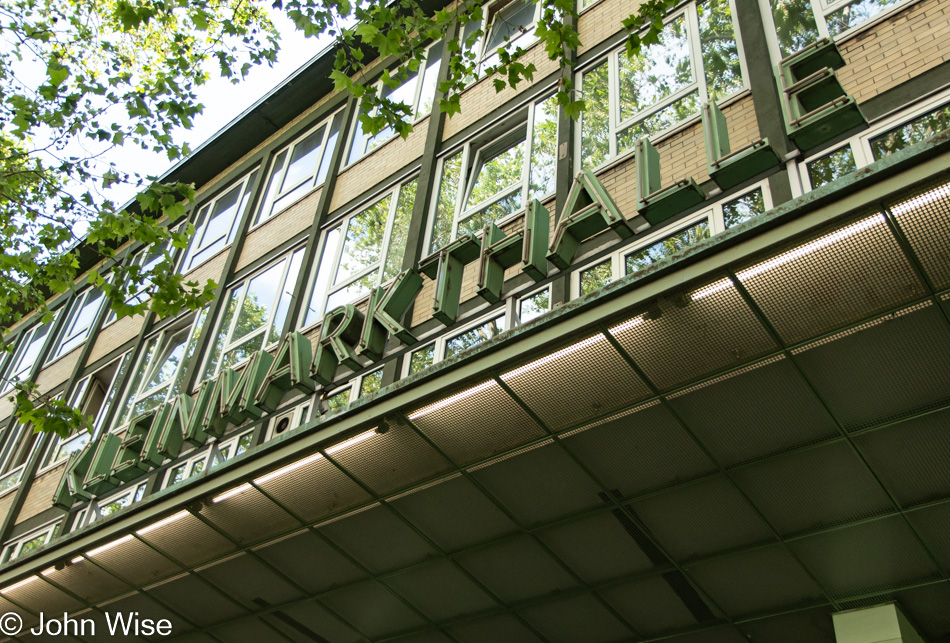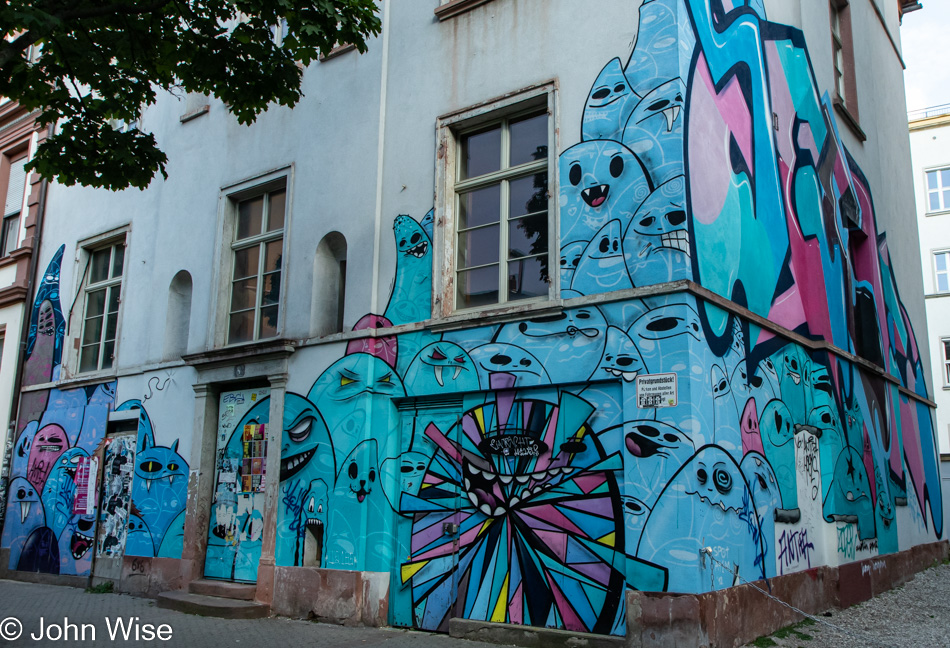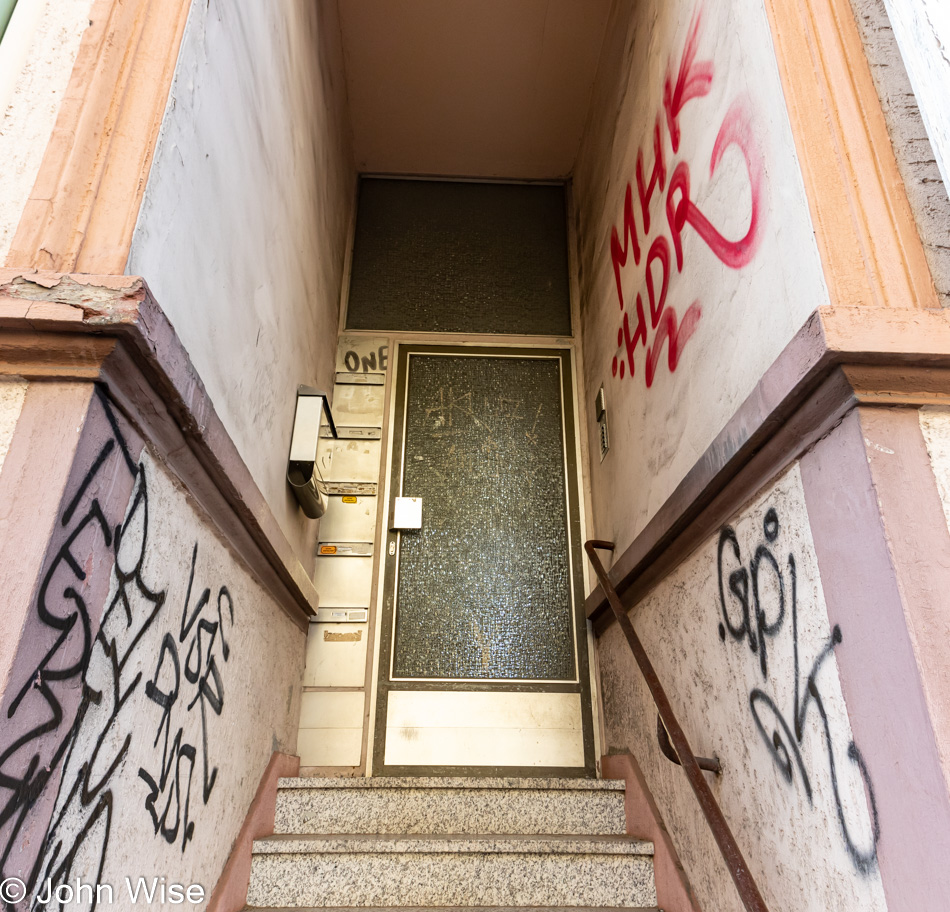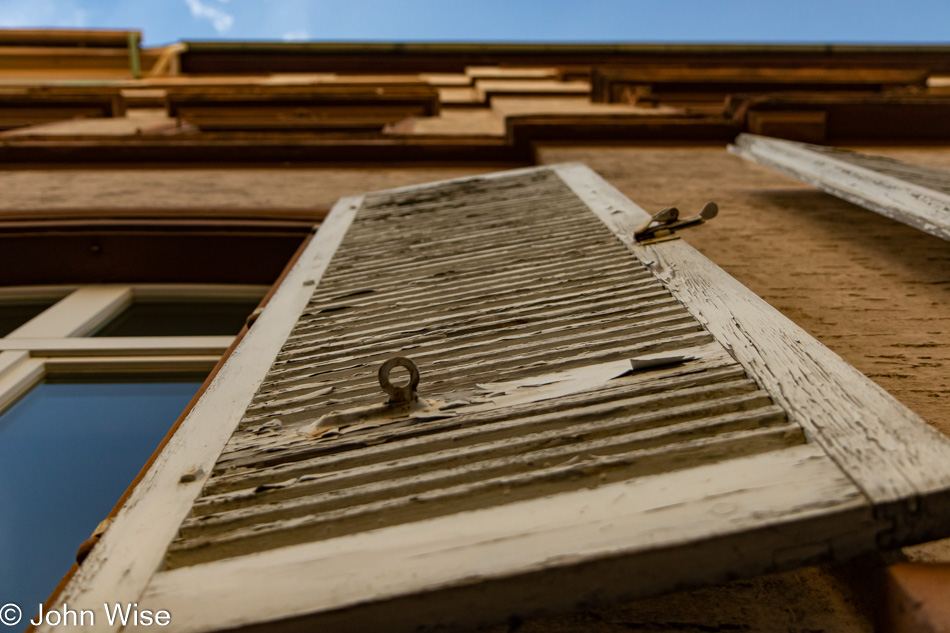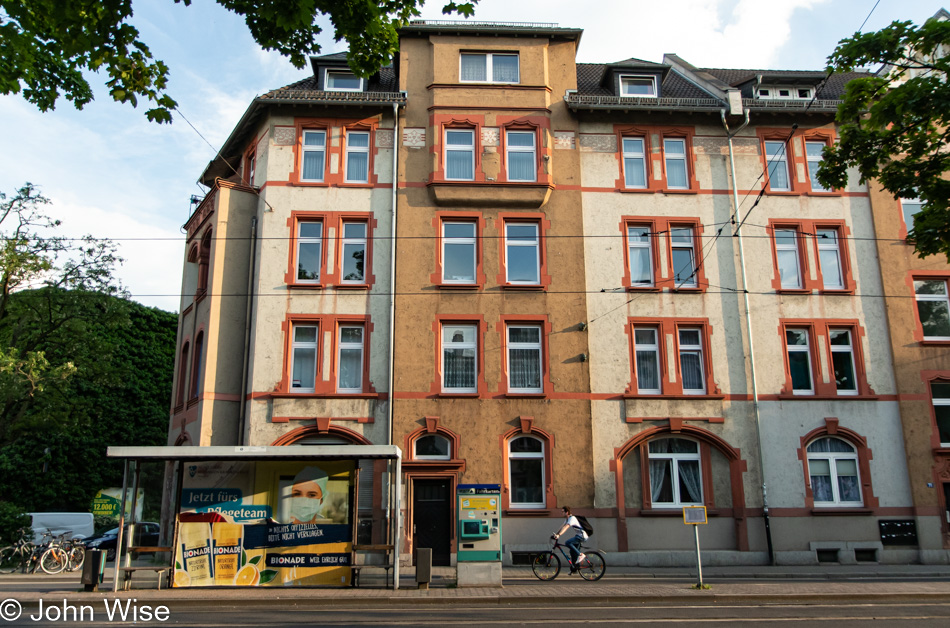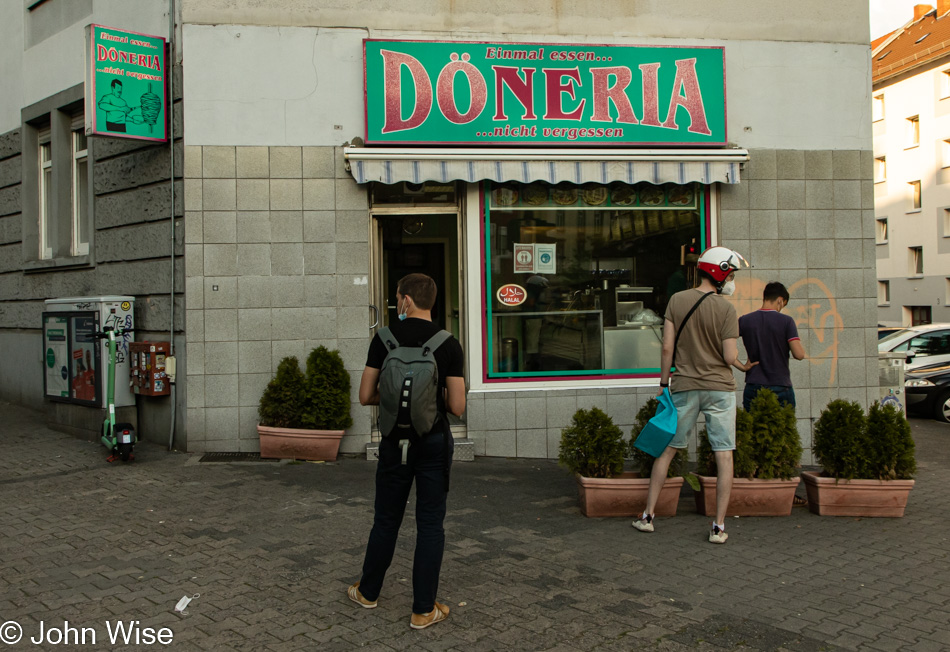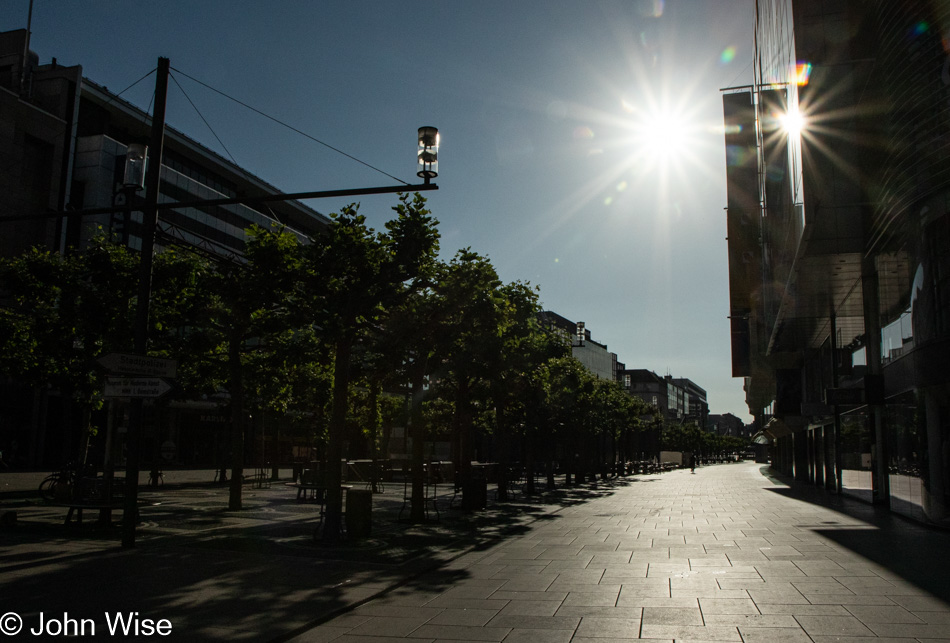
Waking at four in the morning is for the birds, and maybe that’s who woke me. As much as I tried to return to much-needed slumber, I couldn’t fight it any longer and, after about 45 minutes called Caroline to tell her goodnight and she could say good morning to me. After a bit of editing, a shower, finishing yesterday’s brief amount of writing, and it was time to get on the train. The U4 only gets me to Konstablerwache. Emerging from the underground it was abundantly obvious that this square had been party central last night; trash was strewn everywhere and blowing in the breeze. On Zeil, it was strangely quiet, with maybe half a dozen other people out here this morning.
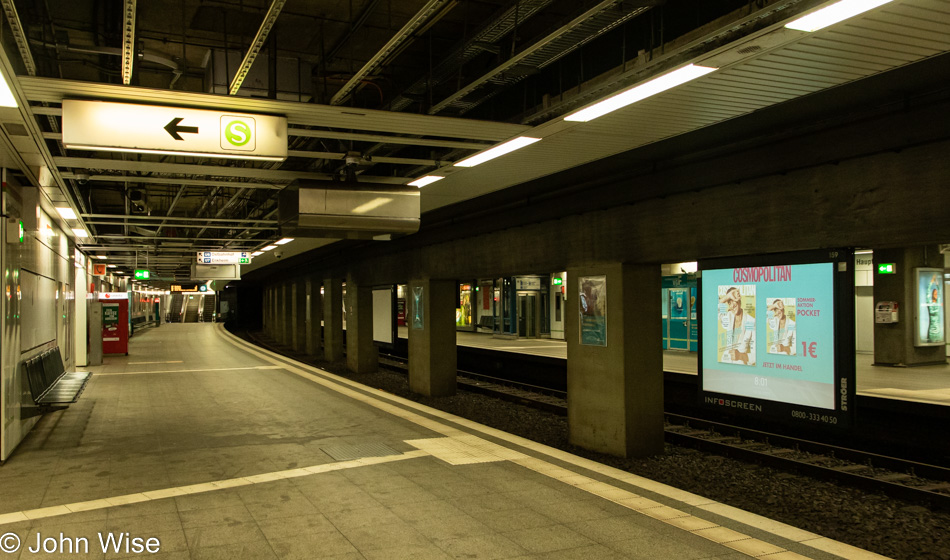
Back downstairs at Hauptwache, where I can catch the U1, U3, or U8 lines to Zeilweg in Heddernheim and the place is empty. Mind you, it’s not particularly early, but this is very strange and drives home that the club scene is currently not a thing. Under normal circumstances, those who spent the night in clubs across Frankfurt would be heading home right now. I remember those days well when leaving the nightlife at 6:00 a.m.; you’d run into shock that it was daylight and that others seemed to be starting a day just as the party was ending.
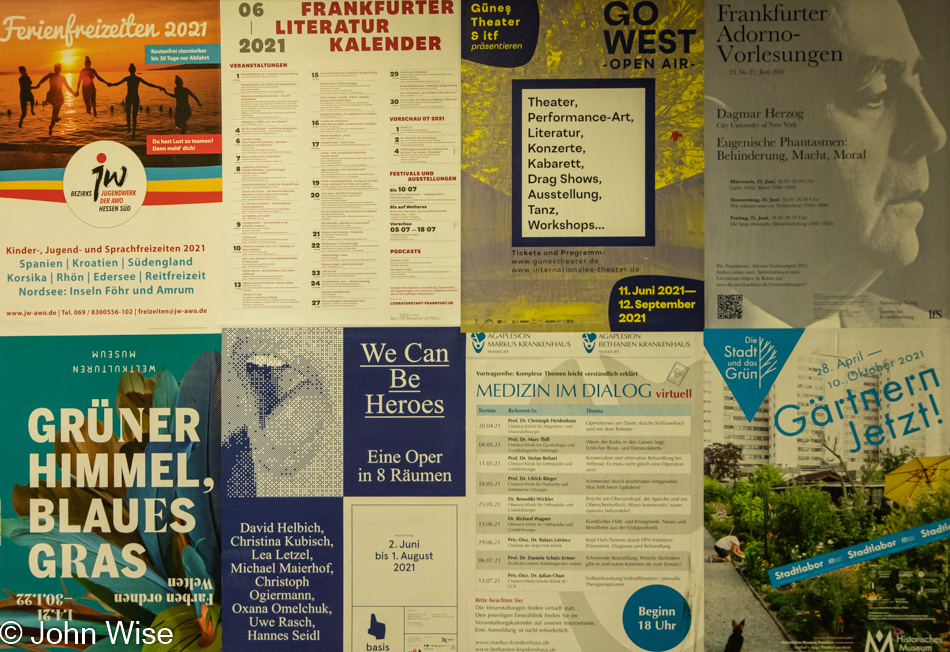
I’ve shared these placards plastering the walls in the subway before, and I will continue to have at least one photo of the same from all subsequent visits to Germany too. The differences between the cultures of Frankfurt and Phoenix couldn’t be more strikingly made obvious by what is shown right here. I’ll translate some of the things going on over the next weeks here, but consider that this small sample of posters is not in any way fully representative of all events. For the real eggheads, a Theodor Adorno lecture is happening over the course of 3 days. Oh, other eggheads won’t feel left out as literary talks, along with dialogs about medicine, are on the horizon. Talking not your thing? How about an opera performed in eight rooms? My guess is that this is about social distancing, not the opera, but the way it’s being presented. Finally, maybe you are interested in one of the many open-air events centered around drag shows, cabaret, dance, performance art, and more – or you could learn about urban gardening. And Phoenix? Oh sure, we’ll have some poorly attended music events here and there, but community-level participative performances and talks about literature, medicine, and philosophy, well, that’s for nerdy Germans.
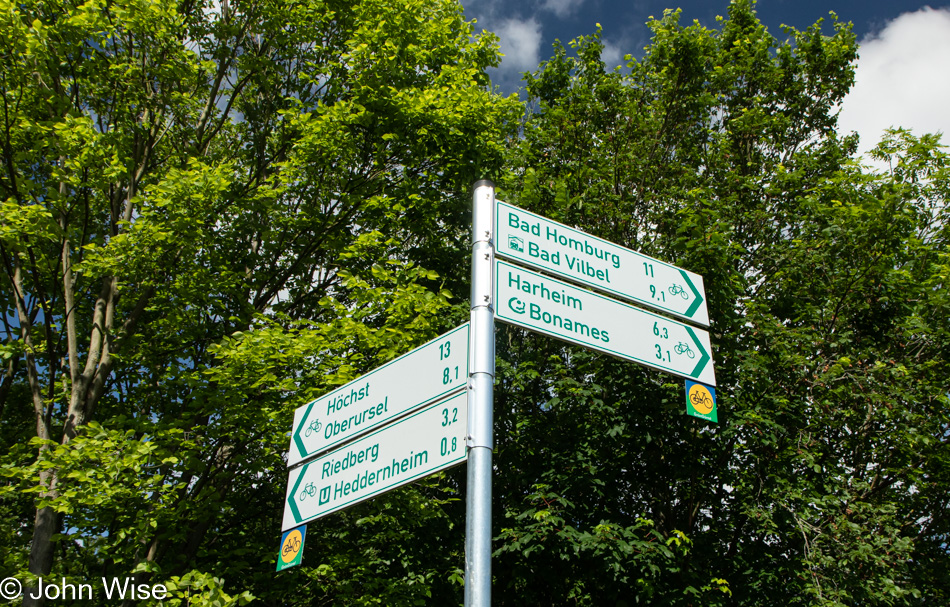
Shortly after 8:00, I arrived in Heddernheim at the Engelhardt’s. With a quick breakfast of some rolls, butter, and jam, Klaus and I were soon out the door for a walk along the Nidda River in the direction of Bad Vilbel.

Just how it worked out that the high temperature for the day was only going to be 72 degrees (22c) is an act of the weather angels smiling down on those of us out to enjoy a nice Sunday walk or ride along this small, slow-moving river.
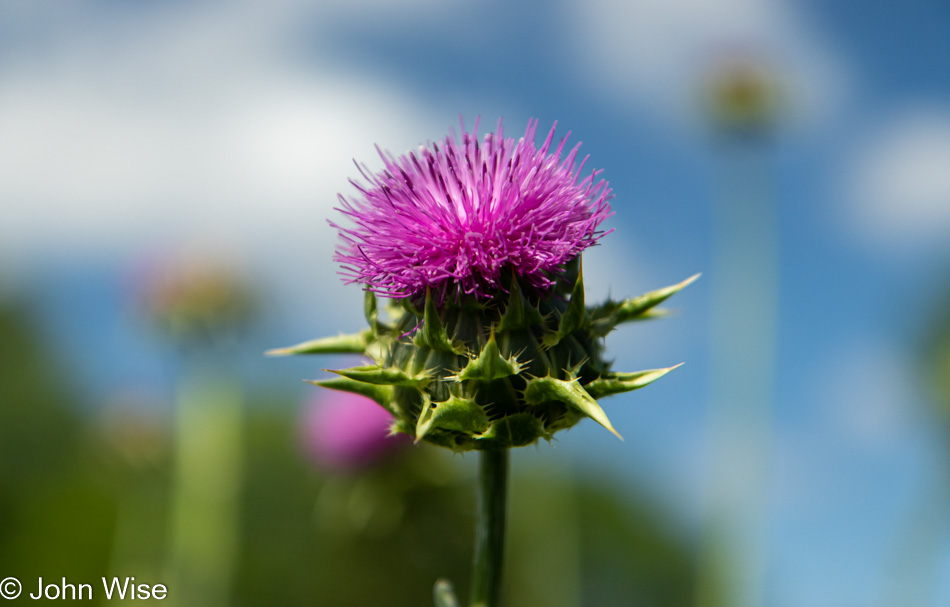
I’ve never seen a thistle I didn’t like, and one that is under the sun is all the better.
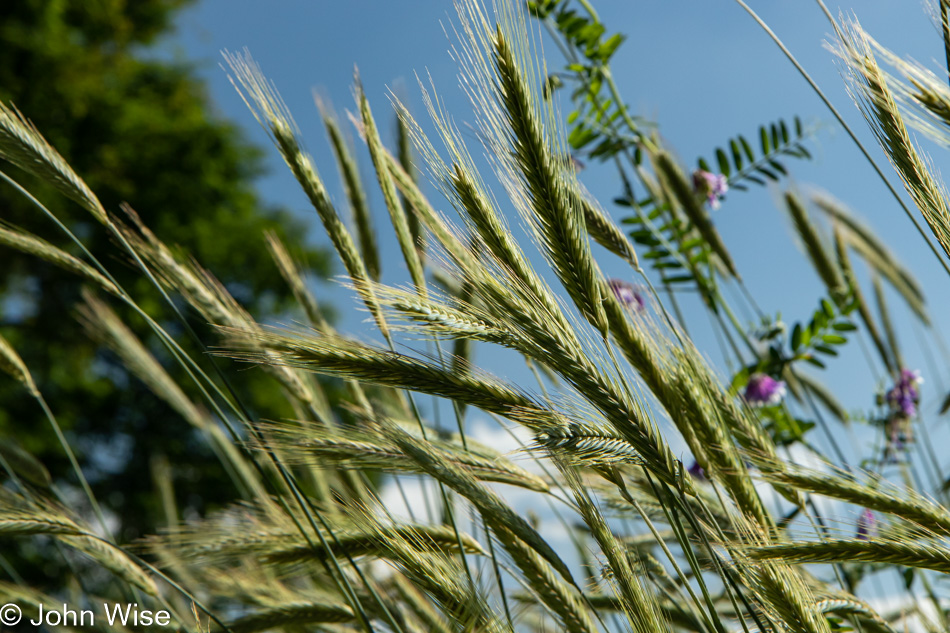
Sandwiched between the villages surrounding Frankfurt are small woodlands, rented garden allotments called Schrebergarten, farms growing sugar beets, various grains, and corn, and many miles of trails that criss-cross the landscape, allowing those out for some recreation to travel different pathways all the time.
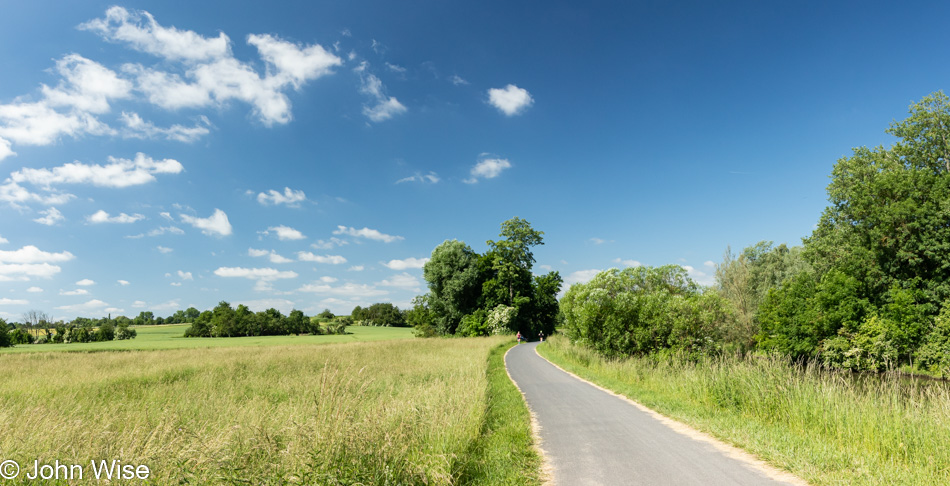
The idea was to go at least as far as Bad Vilbel, and as long as the landscape looks like this, I think I could walk right through Fulda, into Erfurt, and all the way to Leipzig. Google is showing me that the path would be 331 kilometers long (205 miles), requiring 68 hours of walking or about 16 days with my current endurance.
As I’m considering this, I have this great idea for Germany, and Europe for that matter. Just as Elon Musk is building a network of charging stations across the United States for his Tesla brand, how about you Europeans build out a network of e-bike charging stations so people like my wife and I can pedal our way into multi-week adventures through the lesser-visited areas of your lands.
NOTE: A kind reader just shared this link with me in a comment, and I felt like it should go right here. He pointed out that there is a service/website that caters to cyclists pedaling across Germany called BettundBike or Bed & Bike. Campsites, hotels, apartments, and various hosts cater to those traveling by bicycle. Click here to visit Bettundbike.com.
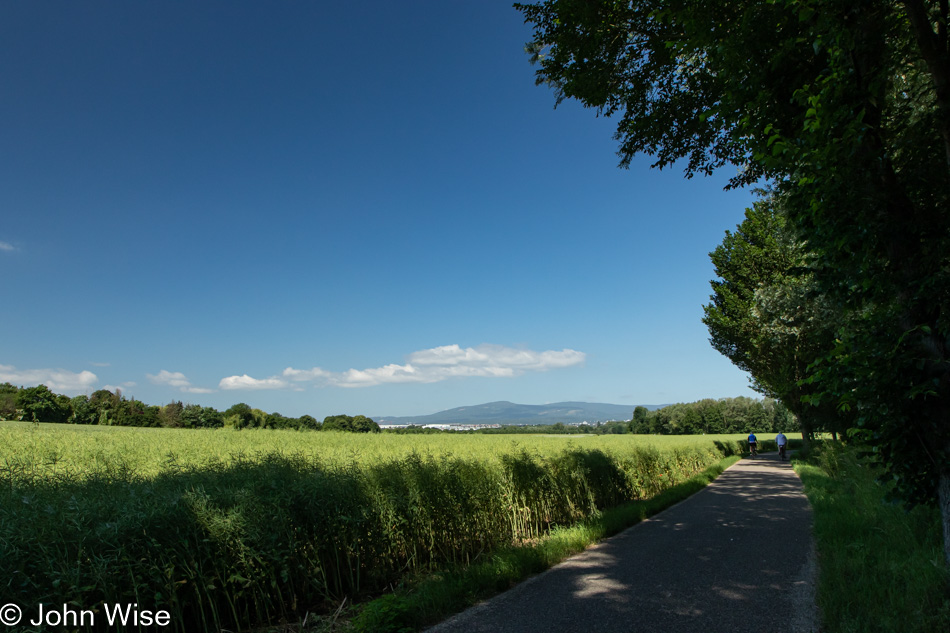
Maybe three hours down the trail, we stop at a small riverside cafe for a bratwurst and water. We’ve been walking about 7 miles (11km) by now and are less than half a mile from Bad Vilbel with a good chance we’ll go further as the day is perfect for this walk. While there’ve been mostly bicycles out here, there are a good amount of walkers too, but only two photographers, Klaus and John.

We can’t see horses and not strike up a conversation about Katharina. That’s right, Katharina, we also think of you while out and about in the world and hope that you, too, think of us.
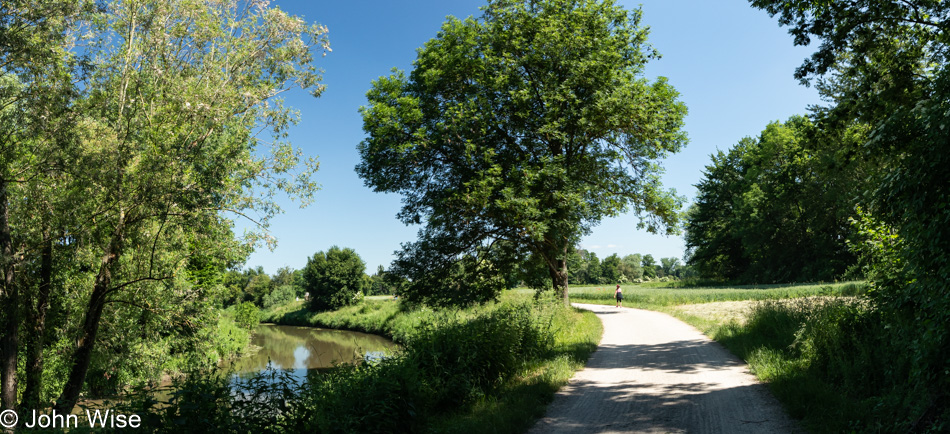
These are not just photos of more of the same, although I wouldn’t fault you for thinking just that. For me, they are motivational reminders that the train, car, or taxi is not always needed to get places in Europe, especially if you have time. Although, what does all the time in the world matter if you don’t have your health to be able to explore such wonderful options? If I can walk 14 miles (22km) today at 58 years old, I hope to be able to walk at least 10 miles (16km) on this kind of journey when I’m 68.
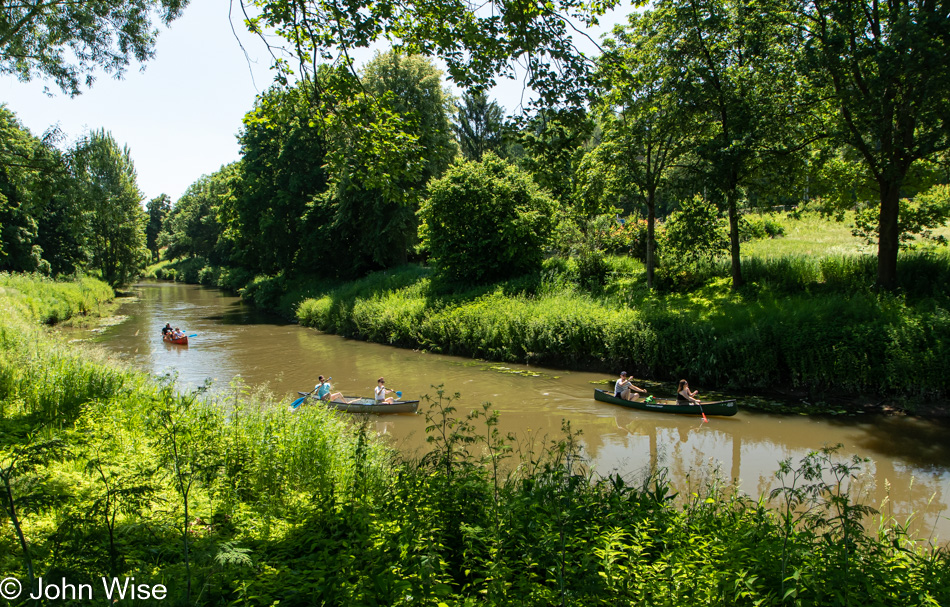
Rewilding the rivers is an ongoing process in Germany, but one that’s been being taken seriously for at least a couple of decades now. As more lands and waterways are brought back to their natural states, more recreational opportunities open up, inviting us to walk in this restored nature or enjoy a slow moment rowing down a river.

We’re not very fast, but that’s likely attributable to our stopping to listen to frogs, read about bats, watch a heron fishing for breakfast, or try to figure out the crops growing along the way, all the while taking photos of all we can.
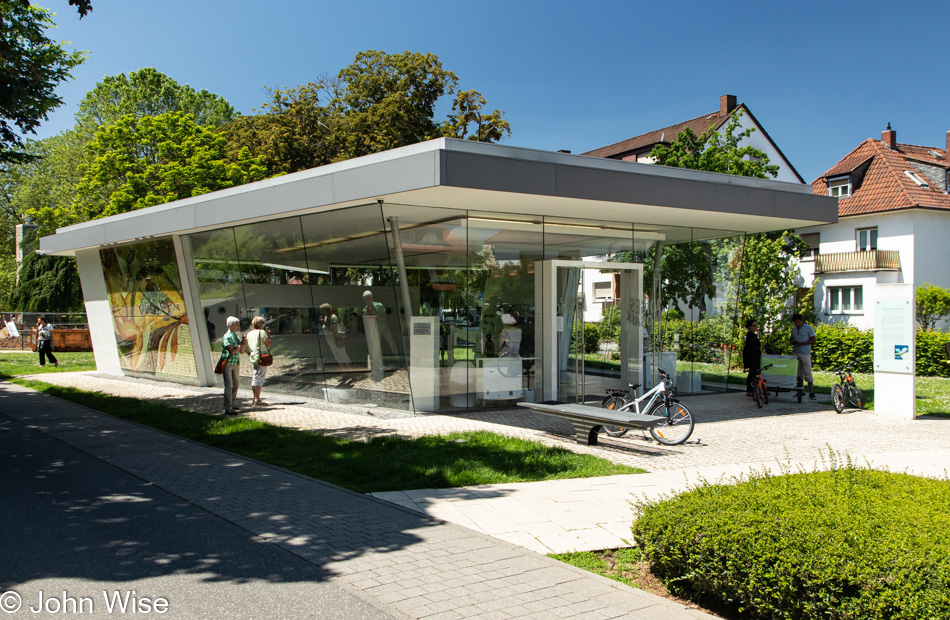
This attractive, mostly glass building next to the Nidda River in Bad Vilbel houses a replica of the Oceanus Mosaic that was once a part of a thermal bath in this city. Today, the original is on display in a museum in Darmstadt, but the next photo will give you an idea of what I looked at this afternoon.
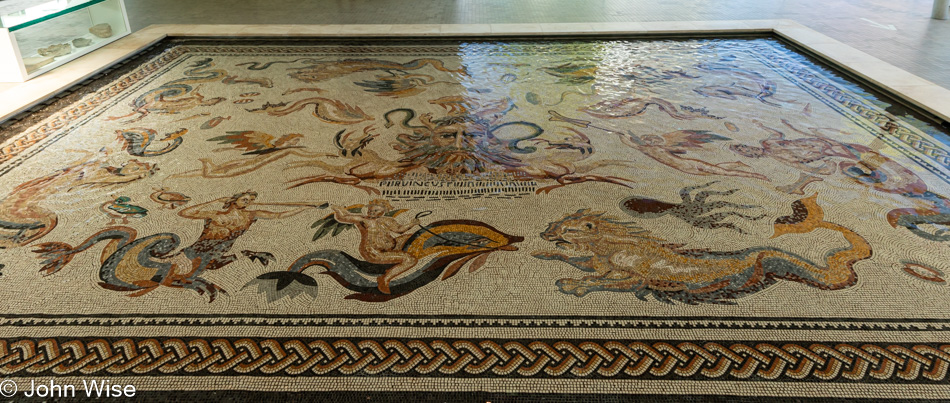
This was not easy to photograph, and while I’m not exactly happy with how the three photos I assembled turned out, it was the best I was going to do; without having a drone, I could hover overhead to take the image from that perspective. The provenance of the mosaic is Roman; they created it here in Bad Vilbel back in the 2nd century.
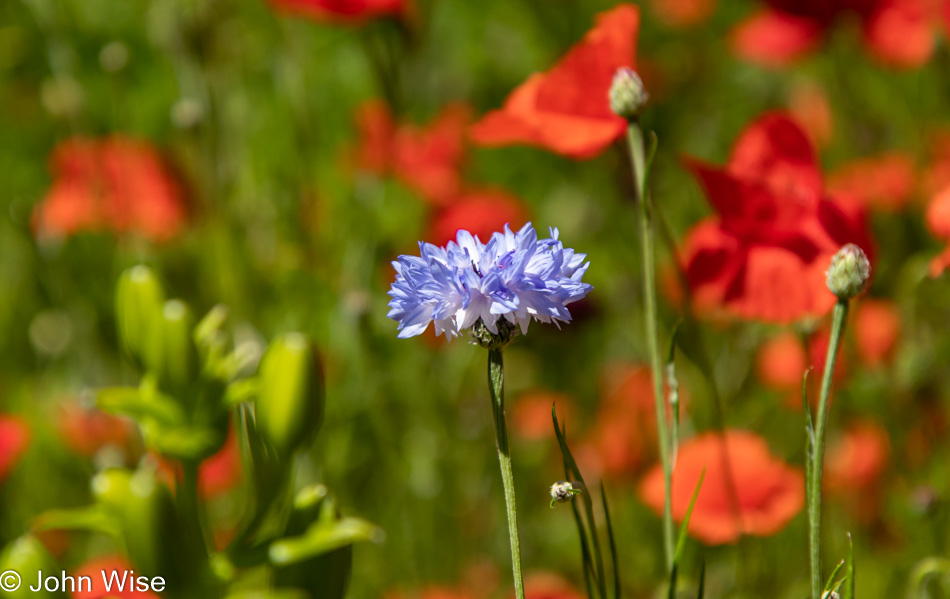
The lone spawning flower in a sea of red flowers.
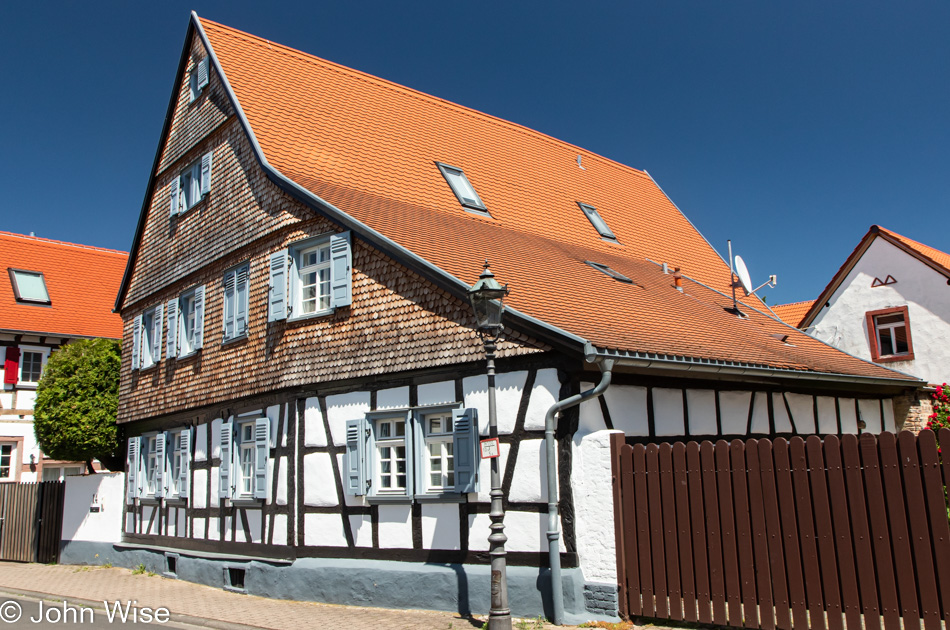
We walked and walked until there was nowhere else to go, and where was this nowhere I refer to? Dortelweil, Germany.
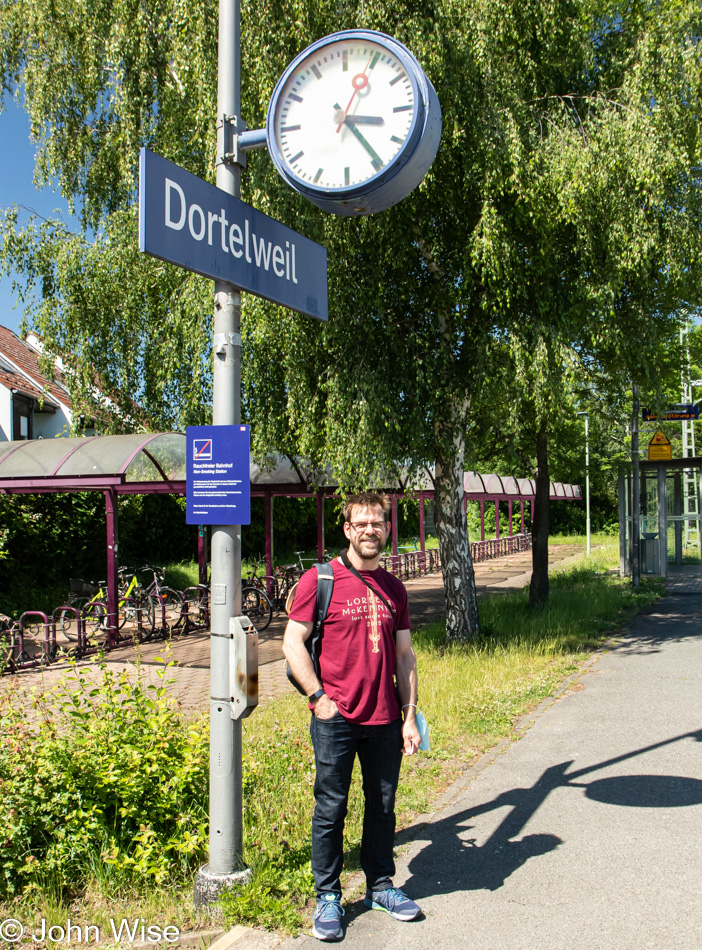
It took us a few minutes before we ran into someone who could tell us where we might find a place to sit down for a coffee, water, and snack. We ended up at Cafe Rupf for just that and it was had in the shade too. The break was certainly needed by this time and that the train only came through every 30 minutes was just fine with us as we were not in a hurry. Our 3:30 train was canceled due to some technical difficulties somewhere on the route; we laughed while others cursed. I thought I’d pull out the notebook and write, but instead, Klaus and I continued to chat until, at 4:00, our train pulled in.
Rather abruptly, we were all of a sudden at Eschersheim, where Klaus was leaving the train, and I was staying on until Hauptbahnhof (Frankfurt Main Station). Instead of getting off where I thought I would, I saw that I could stay on to Konstablerwache, putting me right where I needed to be for the tram to Bornheim-Mitte. The more I thought about it though, I started thinking about how tired I was and that I’d have to go out for dinner later, so maybe I should tend to that early?
At the end of the line at Frankfurt Süd, I left the S6 train for the walk to Schweitzerstrasse. Adolph Wagner’s was my choice for dinner; Caroline and I last ate there years ago. This path of least resistance offered hope that I could crash early tonight.
I’ve now eaten Grüne Soße at Adolf Wagner, Fichtekranzi, Speisekammer, Blauer Bock, Apfelwein Solzer, Malepartus, Hauptwache Cafe, Gaststatte Atschel, Frau Rauscher, Leib & Seele, and the Engelhardt’s and I think I’m forgetting one or two. This leaves only Ebbelwoi Unser, Klosterhof, and Zum Lahmen Esel for me to visit during this visit to Germany.
